七年级下册Units1-2复习课件(共63张PPT)
文档属性
| 名称 | 七年级下册Units1-2复习课件(共63张PPT) | 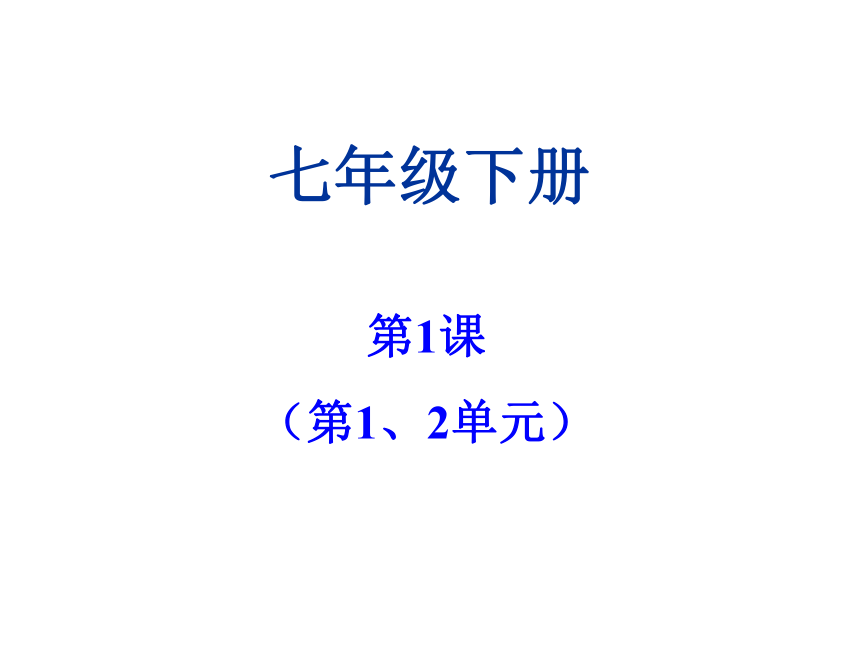 | |
| 格式 | zip | ||
| 文件大小 | 2.8MB | ||
| 资源类型 | 教案 | ||
| 版本资源 | 人教新目标(Go for it)版 | ||
| 科目 | 英语 | ||
| 更新时间 | 2021-05-11 13:50:28 | ||
图片预览

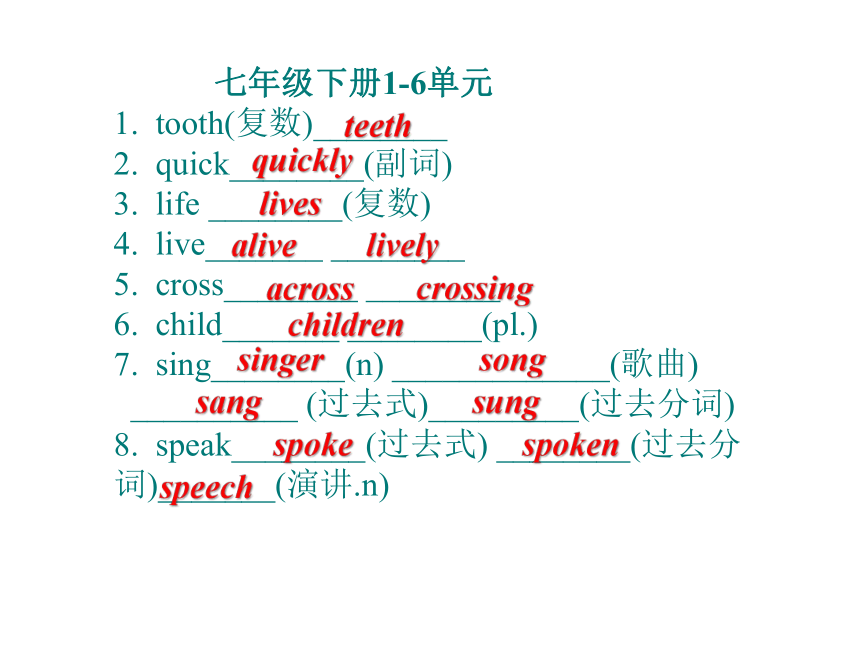
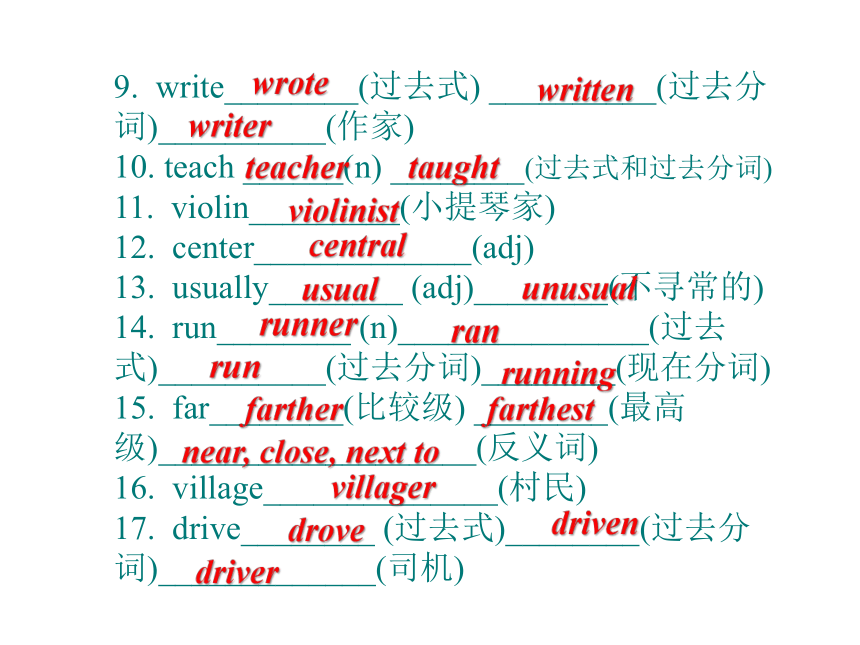
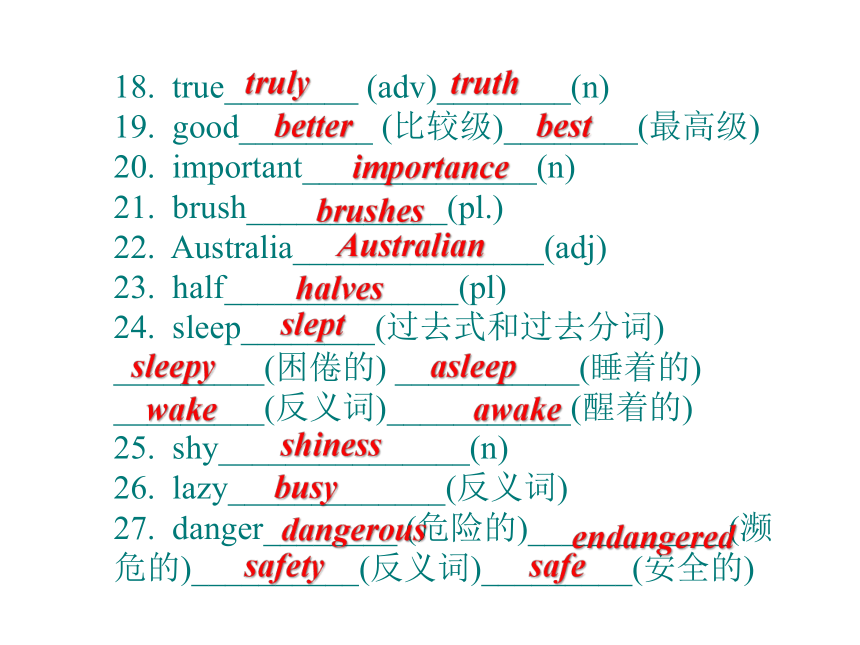
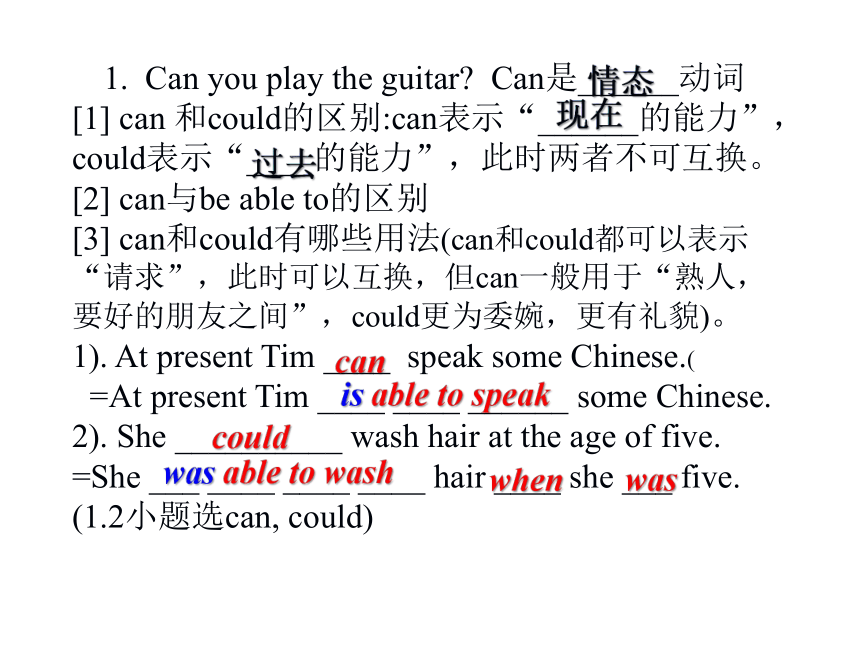
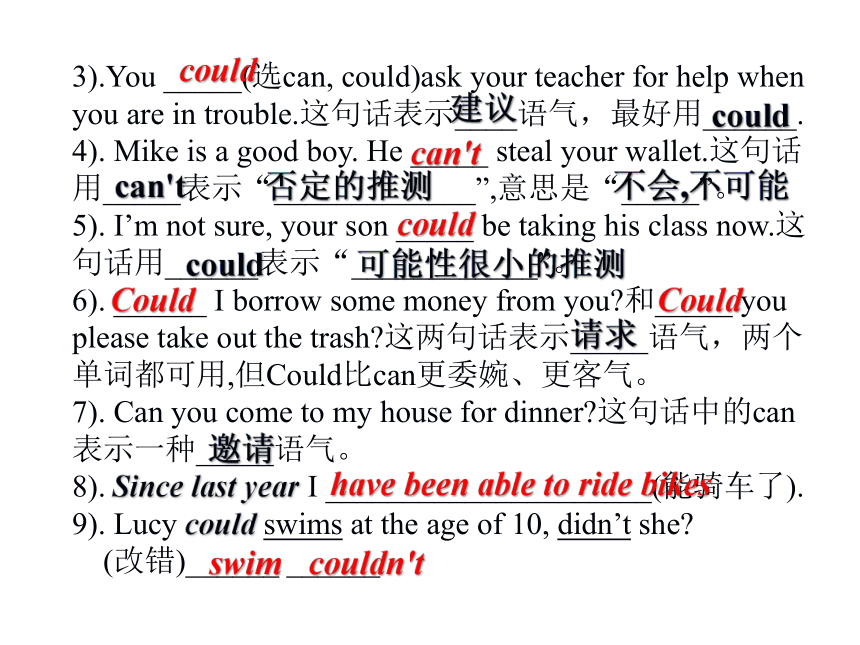
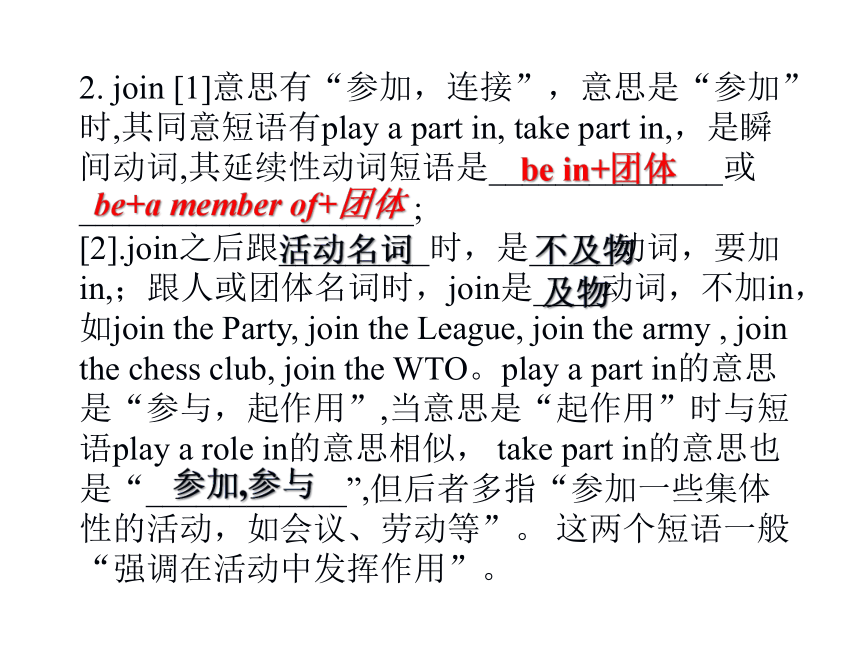
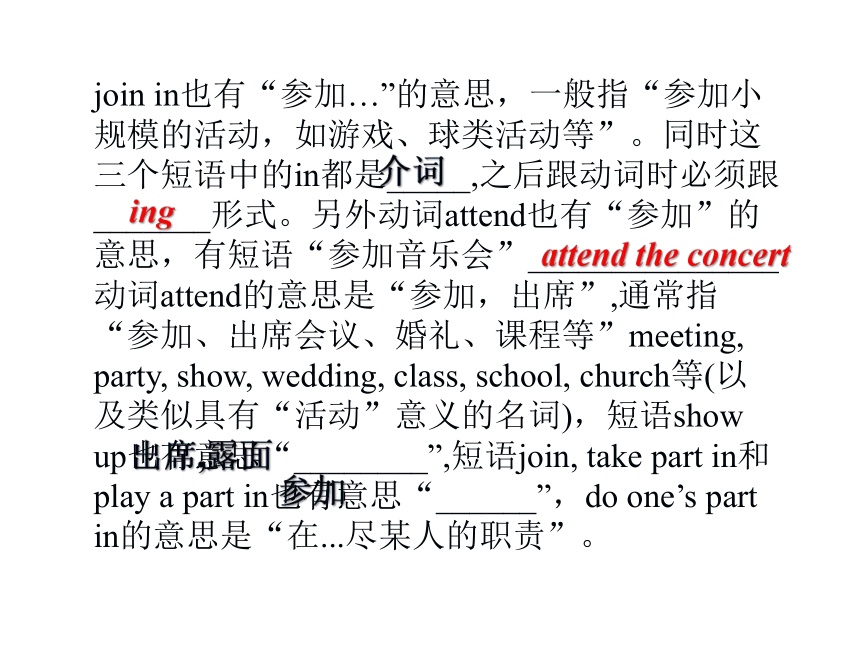
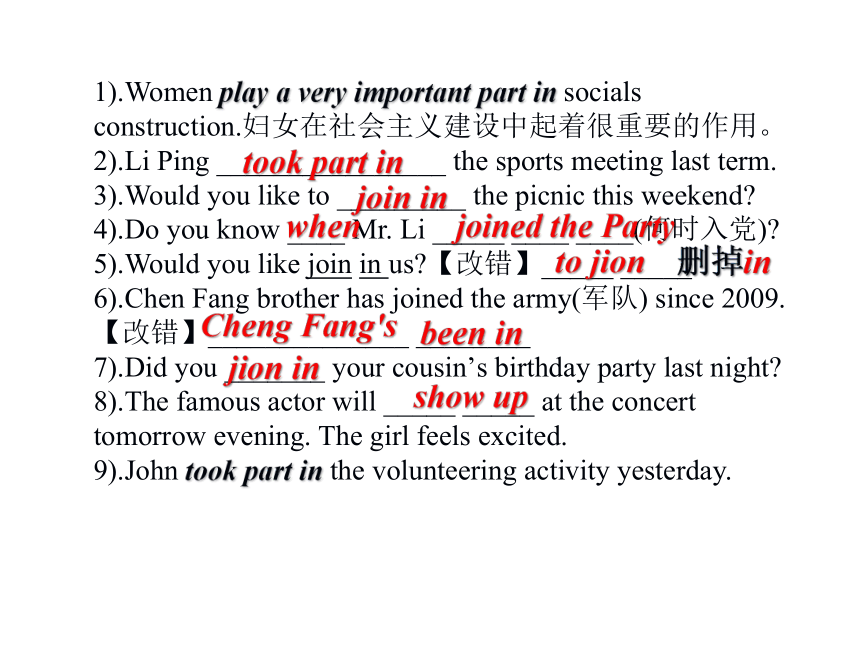
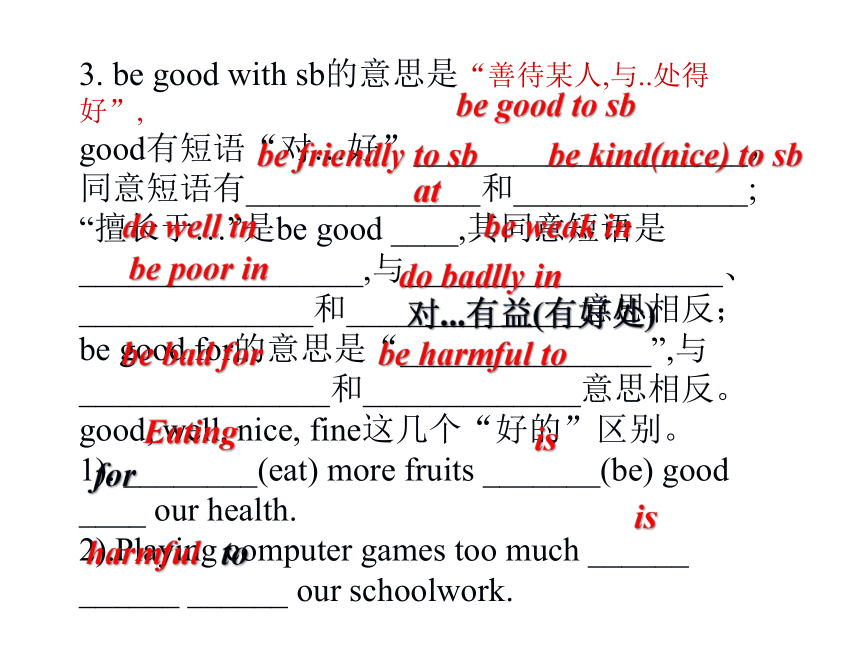
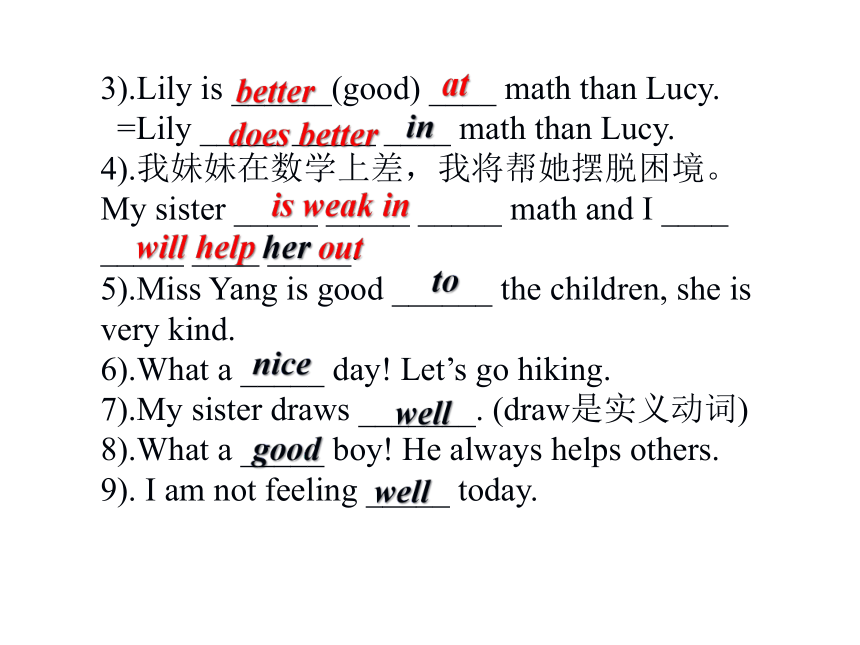
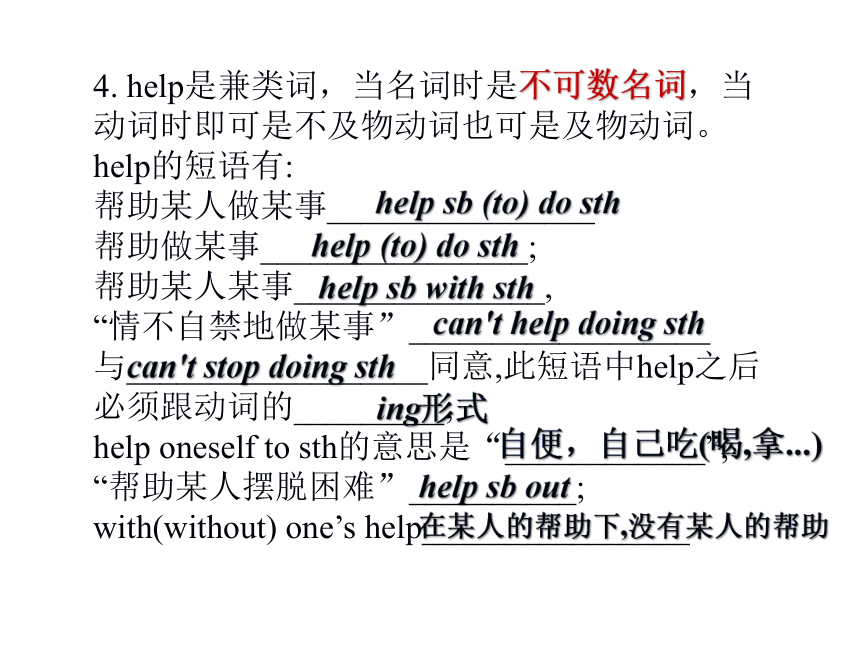
文档简介
(共63张PPT)
七年级下册
第1课
(第1、2单元)
七年级下册1-6单元
1.
tooth(复数)________
2.
quick________(副词)
3.
life
________(复数)
4.
live_______
________
5.
cross________
________
6.
child_______
________(pl.)
7.
sing________(n)
_____________(歌曲)
__________
(过去式)_________(过去分词)
8.
speak________(过去式)
________(过去分词)_______(演讲.n)
teeth
quickly
lives
alive
lively
across
crossing
children
singer
song
sang
sung
spoke
spoken
speech
9.
write________(过去式)
__________(过去分词)__________(作家)
10.
teach
______(n)
________(过去式和过去分词)
11.
violin_________(小提琴家)
12.
center_____________(adj)
13.
usually________
(adj)________(不寻常的)
14.
run________
(n)_______________(过去式)__________(过去分词)________(现在分词)
15.
far________(比较级)
________(最高级)___________________(反义词)
16.
village______________(村民)
17.
drive________
(过去式)________(过去分词)_____________(司机)
wrote
written
writer
teacher
taught
violinist
central
usual
unusual
runner
ran
run
running
farther
farthest
near,
close,
next
to
villager
drove
driven
driver
18.
true________
(adv)________(n)
19.
good________
(比较级)________(最高级)
20.
important______________(n)
21.
brush____________(pl.)
22.
Australia_______________(adj)
23.
half______________(pl)
24.
sleep________(过去式和过去分词)
_________(困倦的)
___________(睡着的)
_________(反义词)___________(醒着的)
25.
shy_______________(n)
26.
lazy_____________(反义词)
27.
danger________
(危险的)____________(濒危的)__________(反义词)_________(安全的)
truly
truth
better
best
importance
brushes
Australian
halves
slept
sleepy
asleep
wake
awake
shiness
busy
dangerous
endangered
safety
safe
1.
Can
you
play
the
guitar?
Can是______动词
[1]
can
和could的区别:can表示“______的能力”,could表示“____的能力”,此时两者不可互换。
[2]
can与be
able
to的区别
[3]
can和could有哪些用法(can和could都可以表示“请求”,此时可以互换,但can一般用于“熟人,要好的朋友之间”,could更为委婉,更有礼貌)。
1).
At
present
Tim
____
speak
some
Chinese.(
=At
present
Tim
____
____
______
some
Chinese.
2).
She
__________
wash
hair
at
the
age
of
five.
=She
___
____
____
____
hair
____
she
___
five.
(1.2小题选can,
could)
情态
现在
过去
can
is
able
to
speak
could
was
able
to
wash
when
was
3).You
_____(选can,
could)ask
your
teacher
for
help
when
you
are
in
trouble.这句话表示____语气,最好用______.
4).
Mike
is
a
good
boy.
He
_____
steal
your
wallet.这句话用_____表示“_____________”,意思是“_____”。
5).
I’m
not
sure,
your
son
_____
be
taking
his
class
now.这句话用______表示“____________”。
6).
______
I
borrow
some
money
from
you?和_____
you
please
take
out
the
trash?这两句话表示_____语气,两个单词都可用,但Could比can更委婉、更客气。
7).
Can
you
come
to
my
house
for
dinner?这句话中的can表示一种_____语气。
8).
Since
last
year
I
_____________________(能骑车了).
9).
Lucy
could
swims
at
the
age
of
10,
didn’t
she?
(改错)______
______
could
can't
could
Could
Could
have
been
able
to
ride
bikes
swim
couldn't
建议
could
can't
否定的推测
不会,不可能
could
可能性很小的推测
请求
邀请
2.
join
[1]意思有“参加,连接”,意思是“参加”时,其同意短语有play
a
part
in,
take
part
in,,是瞬间动词,其延续性动词短语是______________或____________________;
[2].join之后跟_________时,是_____动词,要加in,;跟人或团体名词时,join是____动词,不加in,如join
the
Party,
join
the
League,
join
the
army
,
join
the
chess
club,
join
the
WTO。play
a
part
in的意思是“参与,起作用”,当意思是“起作用”时与短语play
a
role
in的意思相似,
take
part
in的意思也是“____________”,但后者多指“参加一些集体性的活动,如会议、劳动等”。
这两个短语一般“强调在活动中发挥作用”。
活动名词
不及物
及物
参加,参与
be
in+团体
be+a
member
of+团体
join
in也有“参加…”的意思,一般指“参加小规模的活动,如游戏、球类活动等”。同时这三个短语中的in都是_____,之后跟动词时必须跟_______形式。另外动词attend也有“参加”的意思,有短语“参加音乐会”_______________.动词attend的意思是“参加,出席”,通常指“参加、出席会议、婚礼、课程等”meeting,
party,
show,
wedding,
class,
school,
church等(以及类似具有“活动”意义的名词),短语show
up也有意思“________”,短语join,
take
part
in和play
a
part
in也有意思“______”,do
one’s
part
in的意思是“在...尽某人的职责”。
attend
the
concert
ing
介词
出席,露面
参加
1).Women
play
a
very
important
part
in
socials
construction.妇女在社会主义建设中起着很重要的作用。
2).Li
Ping
________________
the
sports
meeting
last
term.
3).Would
you
like
to
_________
the
picnic
this
weekend?
4).Do
you
know
____
Mr.
Li
_____
____
____(何时入党)?
5).Would
you
like
join
in
us?【改错】_____
_____
6).Chen
Fang
brother
has
joined
the
army(军队)
since
2009.【改错】______________
________
7).Did
you
_______
your
cousin’s
birthday
party
last
night?
8).The
famous
actor
will
_____
_____
at
the
concert
tomorrow
evening.
The
girl
feels
excited.
9).John
took
part
in
the
volunteering
activity
yesterday.
took
part
in
join
in
when
joined
the
Party
to
jion
删掉in
been
in
Cheng
Fang's
jion
in
show
up
3.
be
good
with
sb的意思是“善待某人,与..处得好”,
good有短语“对…好”____________________,同意短语有______________和______________;
“擅长于…”是be
good
____,其同意短语是_________________,与___________________、______________和______________意思相反;
be
good
for的意思是“_______________”,与_______________和_____________意思相反。good,
well,
nice,
fine这几个“好的”区别。
1).
________(eat)
more
fruits
_______(be)
good
____
our
health.
2).Playing
computer
games
too
much
______
______
______
our
schoolwork.
be
good
to
sb
be
friendly
to
sb
be
kind(nice)
to
sb
at
do
well
in
be
weak
in
be
poor
in
do
badlly
in
be
bad
for
be
harmful
to
Eating
is
for
is
harmful
to
对...有益(有好处)
3).Lily
is
______(good)
____
math
than
Lucy.
=Lily
_____
_____
____
math
than
Lucy.
4).我妹妹在数学上差,我将帮她摆脱困境。My
sister
_____
_____
_____
math
and
I
____
_____
____
_____.
5).Miss
Yang
is
good
______
the
children,
she
is
very
kind.
6).What
a
_____
day!
Let’s
go
hiking.
7).My
sister
draws
_______.
(draw是实义动词)
8).What
a
_____
boy!
He
always
helps
others.
9).
I
am
not
feeling
_____
today.
better
at
does
better
in
is
weak
in
will
help
her
out
to
nice
well
good
well
4.
help是兼类词,当名词时是不可数名词,当动词时即可是不及物动词也可是及物动词。
help的短语有:
帮助某人做某事________________
帮助做某事________________;
帮助某人某事_______________,
“情不自禁地做某事”__________________
与__________________同意,此短语中help之后必须跟动词的_________;
help
oneself
to
sth的意思是“____________”,
“帮助某人摆脱困难”__________;
with(without)
one’s
help________________
help
sb
(to)
do
sth
help
(to)
do
sth
help
sb
with
sth
can't
help
doing
sth
can't
stop
doing
sth
ing形式
自便,自己吃(喝,拿...)
help
sb
out
在某人的帮助下,没有某人的帮助
注意:
with
the
help
of…=with
one’s
help
=_________________
…=_____________
…,help的形容词形式是_______,意思是“有益的”.
1).Thanks
a
lot
for
give
me
so
many
help.
【改错】______
_______
2).Wu
Li
_______(help)
her
mother
______(cook)
meals
at
times.
3).
Yesterday
we
________(help)
__________
(clean)
the
yard.
4).
After
Mary
heard
the
news,
she
_____
______
______
out
(禁不住哭出声来).
=After
Mary
heard
...,she
_________________
out.
Thanks
to
because
of
helpful
giving
so
much
helps
(to)
cook
helped
(to)
clean
couldn't
help
crying
couldn't
stop
crying
5).
请自己喝一些饮料,孩子们。
Please
______
_______
_____
some
drink,
kids.
6).
Yesterday
I
____
____
(用完了)money,
my
friend
_______
____
_____(帮我解决了困难).
7).
Under
the
help
of
Mr.
Wang,
I
improve
my
English
last
term.(改错)_______
______
8).
It’s
_______(help)
_______(learn)
to
surf
the
Internet.
9).
Thanks
to
Mr.
Chen,
I
solved
my
problem.
=_____
_____
_____
______,
I
solved
my
problem
help
yourselves
to
used
up
helped
me
out
With
improved
helpful
to
learn
With
Mr.
Chen's
help
5.
sing即可是____动词,也可是____动词,过去式是______,过去分词是_______(与__________________等动词的变化一样)
.
sing
songs
for
sb的意思是“___________”,
“跟着唱歌”_______________sing的名词形式是______,意思是“歌手,歌唱家”。
1).
我愿意给老人们唱歌。
______
_____
____
___
songs
____
the
old.
2).
Just
now
I
heard
a
_____
_______(sing)
in
the
forest.
3).
Mary
prefers
the
music_____________
__________(她能跟着唱歌的音乐).
sang
sung
begin,
sing,
swim...
sing
along
with
singer
I'd
love
to
sing
for
singer
singing
that
she
can
sing
along
with
及物
不及物
为某人唱歌
6.
school
show的意思是“学校节目”。
show当名词用时意思是“____________”,
talk(
sports,
game)
show,
on
show=__________,意思是“在展览”
show当动词用时,意思有“________________”
show的过去式是______,过去分词是________。show之后可以跟双宾语结构,即短语
show
sb
sth=show
sth
_____
sb的意思是“___________________”;
show
up的意思是“___________”与_____________________同意。
节目,展览
拿给...看,展示,教,指路
把某物拿给某人看,展示给某人某物
出席,露面
on
display
showed
shown
to
come
along(出现),appear
1).
那些在展览的照片是我叔叔去年拍的。______
______
______
______
_____
_____
by
my
uncle
last
year.
2).
My
best
friend
________
me
his
new
mobile
phone
just
now.
=My
best
friend
_______
his
new
mobile
phone
___
me
just
now.
=My
best
friend’s
new
mobile
phone
_____
_____
_____
me
just
now.
3).
Could
you
show
me
the
way
to
the
farm?
此句中show的意思是“_____________”。
4).
My
cousin
told
me
that
he
would
meet
me
at
the
school
gate,
but
he
didn’t
show
up.
指路
The
photos
on
display
were
taken
showed
showed
to
was
shown
to
7.
learn的意思是“______________”,有短语
“学习关于...,了解”____________,
“向...学习,从...中学到”_______________,
“学习做某事”_________,
“学会如何在某事”__________________,
“自学”________________=_________________
Learn的过去式和过去分词是______,
learn有名词形式________,意思是“_________”。
注意:learn与study的区别(learn强调_________,
study强调__________,还有意思“______”,study还可当名词用,意思是“______”。表示“学习…语言,学习...学科”时study和learn都可以用,例:学习法语learn
French或study
French)。
learn
about
learn
from...
learn
to
do
sth
learn
how
to
do
sth
learn
sth
by
oneself
teach
oneseld
sth
learnt
learner
学习,学会,学到
学习者
学的结果
学习的过程
研究
书房
Study有短语
“为考试而学习(准备)”_____________
teach也有短语“自学…”_______________,
“教某人如何做某事”______________________
teach还有短语“教某人…”_______________,也可用动词______来表示“教”的意思。teach的过去式和过去分词都是_______,其名词形式是______.
1).
Joe通过读课本为考试做准备。
Joe
_____
_______
_____
____
___
the
textbook.
2).
My
aunt
______
(learn)
Japanese
____
____
at
college.
我的阿姨在大学时自学会了日语。
=My
aunt
________
______
Japanese
at
college.
study
for
a
test
teach
oneself
sth
teach
sb
how
to
do
sth
teach
sb
sth
taught
teacher
studies
for
a
test
by
reading
learnt
by
herself
taught
herself
show
3).
We
should
learn
_________
Liu
Xiang
________
his
spirit(精神).
4).At
the
age
of
9,
she
_______
(learn)
________(play)
the
trumpet.
5).How
long
_____
your
sister
___________
(学习法语)?
6).Last
year
the
boy
_____
_____
_____
____
_____
(学会了如何上网).
7).
I
was
reading
a
storybook
in
my
study.这句话中的study的意思是“______”,词性是____。
8).
星期六晚上我父亲教会了我如何包饺子。
My
father
_____
____
_____
___
____
dumplings
____
Saturday
….
9).
Mrs.
Deng
_____
_____
history
this
term.
(此句用了短语__________,代词一定要使用__________)
书房
名词
from
about
learnt
to
play
has
learnt
French
learnt
how
to
surf
the
internet
taught
me
how
to
make
on
teaches
us
teach
sb
sth
宾格
另外“为...而准备”翻译成_____________________或___________________
prepare的名词形式是__________,意思是“准备工作”
“准备做某事,情愿迅速做某事”_____________
10).
John已经为他的生日晚会准备好了。
John
_____
___
____
_____
his
birthday
party
already
John
_____
______
_____
his
birthday
party
already.
11).
The
man
______________(give)
his
money
to
the
poor
kids.这位男士情愿把他的钱给这些穷的孩子。
12).
The
couple
______________(have)
their
wedding.
这对夫妇在准备举办他们的婚礼。
be
ready
for
prepare
for
preparation
be
ready
to
do
sth
has
been
ready
for
has
prepared
for
is
ready
to
give
are
ready
to
have
8.
Can
you
talk
to
them
…?
They
can
tell
you
stories.
Can
you
speak
English?
动词tell是____动词,意思是“吩咐,嘱咐”,
“告诉某人关于...(的情况)”_________________;
“叫某人做(不做)某事”__________________;
“说老实话”_______________,
tell的过去式和过去分词都是_____,与_____的变化相似。
[1]
英语中表示“讲故事、笑话、撒谎”时都使用动词_____,即短语______________________
。
当tell之后跟的直接引语是一个否定祈使句时,改成间接引语,可以使用短语_________________.
vt
tell
sb
sbout...
tell
sb
(not)
to
do
sth
to
tell
the
truth
told
sell
tell
tell
stories
(jokes,
lies)
tell
sb
not
to
do
sth
1).
When
I
was
young,
my
grandpa
_____
______
for
me
before
going
to
sleep.
2).
“Don’t
play
cards
at
school.”
my
father
said
to
me.
=My
father
____
_____
_____
_____
_____
cards
at
school.
3).
The
police
wanted
Dave
tell
them
of
the
accident.
【改错】_______
_______
[2]
tell,
ask,
say,
talk这几个”说”的区别:
say之后跟人时是_______动词,要加介词_____,即短语_________,say之后跟“说话的内容”时是及物的。还有短语say
“Hello,
bye,
OK,
no”
to
sb.
say
“Hello”
to
sb=______
_____,
say有句型“据说”__________________(it是形式主语)
say的过去式和过去分词都是_________
不及物
told
stories
told
me
not
to
play
to
tell
about
to
say
to
sb
greet
sb
said
It's
said
that
...
动词短语talk
on
the
phone的意思是“________”.
talk是一个_____动词,意思是“________”,强调“谈话的相互性”,表示“与某人交谈”时使用短语_________或_________,
表示“谈论什么”时使用短语____________与动词______同意,注意:
talk
about
______
sth=discuss
______
sth,意思是“_____________”,两个短语单词之后必须跟动词的______形式。
“顶嘴,回嘴”___________________
on
the
phone这个____短语的意思是“________”,
on
the
radio“在广播上”,on
the
mobile
phone“在手机上”,on
the
internet
“在网上”,通过以上的短语可以总结出“英语中表示______________时使用介词______。”
在电话上交谈
不及物
谈话,谈论
讨论做某事
介词
在电话上
某种无线电方式
talk
to
sb
talk
with
sb
talk
about
discuss
doing
doing
ing
talk
back
(to)
on
动词ask的短语有:
“问某人关于...的情况”______________,
“向某人要...,寻求”___________________
介词for之后可以跟help,
advice,
money等做宾语。(注意:
介词for与about的区别).
“请某人做(不做)某事”_____________________
4).张老师正在讲电话。
Mr.
Zhang
______
________
_____
_____
______.
5).
My
father
is
talking
_____
my
headmaster
______
my
grades.
(填介词)
6).The
students
______
______
_______
their
picnic.
这些学生正在讨论他们的野餐的事。
ask
sb
about...
ask
sb
for
...
ask
sb
(not)
to
do
sth
is
talking
on
the
phone
to
about
are
talking
about
7).
I
got(得到)
the
good
news
______
the
internet
and
he
got
it
_____
TV.(填介词)
8).My
parents
________
________
____(讨论帮助)
my
uncle
last
night.
=My
parents
_______
_______
my
…
9).When
getting
home,
we
should
______
_____
_____
our
parents.=When
getting
home,
we
should
______
our
parents.
10).
Mr.
Wu
_____
__
_______
Lily’s
brother
this
Morning.
今天早晨吴老师问了我关于Lily的弟弟的情况。
11).
When
I
get
into
trouble,
I
often
____
my
teacher
____
help.
12).
My
brother
_______(ask)
me
____________(not
tell)
my
parents
about
the
bad
thing
just
now.
13).
__________________?UFO
appeared
in
the
USA.
据说美国出现了UFO
on
on
talked
about
helping
discussed
helping
say
hello
to
greet
asked
me
about
ask
for
asked
not
to
tell
It's
said
that
10)
.
My
teacher
______
(tell)
me
_______(brush)
the
blackboard
five
minutes
ago.
动宾短语speak
English的意思是“_______”,动词speak此时是_____动词,之后的English做它的宾语。英语中表示“讲...语言”时使用动词______,speak之后跟语言名词English、Chinese、Japanese时是______,但如果表示“同某人讲话”时,要加介词_____,即短语_______________。另外English,Chinese,Japanese等语言名词是_______名词。Speak的过去式是______,过去分词是_______,其名词形式有两个,
一是speech,意思是“演讲,演说”.“做演讲”可以翻译成_______________或_____________.二是speaker的意思是“演讲者”,
“口语英语”_______________。
讲英语
及物
及物的
不可数
told
to
brush
speak
to
speak
to
sb.
spoke
spoken
make
a
speech
give
a
speech
spoken
English
1).
John
can
________
________(讲汉语).
句中的speak是______动词
2).
Could
I
_____
______
Wu
Ping?
我能同吴平讲电话吗?此句speak之后跟的是人,应加上介词____。
3).
My
sister
can
speaks
many
French.
(改错)_______
________
4).
The
famous
singer
will
_______
_______
_______
_____(将给..做个演讲)
us
this
Friday.
speak
Chinese
speak
to
to
speak
much
make
a
speech
for
及物
9.
He
works
at
a
radio
station.
单词work是兼类词,
当名词时是_____名词,当动词时是_______动词,其名词形式是_______,
work的意思是“作品”时是____名词。
work的短语有:“从事于”_____________
“算出,找到,
产生效果,进展”______________
“在工作”_____________
“去上班”_____________.
“团结协作,共同努力”__________________与短语___________同意。
注意:
work与job、task的区别(job是_________,
task有“_________”的意思)。
job有短语:find(get)
a
part-time
job____________.
不可数
不及物
worker
work
on(at)
work
out
at
work
go
to
work
work
hard
together
pull
together
可数名词
任务,工作
找(获得)一份兼职工作
可数
动宾短语solve
a
problem的意思是“解决问题”,结构是________,此短语中的solve相当于work
out。solve的名词形式是___________。
1).
____
___
______
___
_____
in
the
factory
(这个工厂的工人的数目)______(be)
over
500
this
year.
2).
What
a
hard
work
it
is!
______
3).
上学期Mike努力学习物理。
Last
term
Mike
______
____
____
physics.
4).
他想要在周末找一份兼职工作来挣一些钱。He
wants___
_____
____
_____
____
on
weekend.
5).
Chen
Bin
_______
______(算出了)
the
physics
problem
alone.
动宾短语
solution
The
number
of
the
workers
is
删掉a
worked
hard
on
to
find
a
part-time
job
to
make
money
worked
out
6).
The
Chinese
medicine
worked
out
very
well.
The
foreigner’s
cough
got
better.
句中的work
out的意思是“_______”.
7).
Our
teacher
hopes
that
we
can
_________
(团结合作).
8).
My
uncle
______
_____
______
(解决了我的麻烦)
yesterday
afternoon.
9).
Uncle
Wu
came
up
with
a
good
________(solve)
at
last
产生效果
work
hard
together
solved
my
problem
solution
10.
We
need
help
at
the
old
people’s
home.
动词need的意思是“_________”,在肯定陈述句中need当实义动词使用,后面再跟动词时要用__________,即短语______________,意思是“_______________”。need也可当情态动词,一般用于否定句和疑问句。
要注意两点:
(1).其否定形式needn’t
do
sth
=________________;
need还有句型There’s
no
need
for
sb
to
do
sth.意思是“_____________________”.
(2).以need开头的一般疑问句的肯定回答是Yes,
sb
_______.而不能再用need(以must开头的一般疑问句的否定回答是No,
sb
_________)。
需要
带to不定式
need
to
do
sth
需要做某事
not
have
to
do
sth
对某人来说没有理由做某事
must
needn't
1).
Today
Tim
_____
_____
_____.
今天Tim需要一些钱(句中need是实义动词)。
2).
Everyone
________(need)
_______
(eat)
some
food.
每个人都需要吃一些食物。
3).
Mary
_______
______(不必煮)
dinner
today.
=Mary
_______
____
_____
____
dinner
today.
4).---Need
Tim
call
his
father
now?
---Yes,
he
_________.
5).There’s
no
need
_____
Alice
_______(see)
the
doctor
today.
=Alice
______
______
the
doctor
today.
needs
some
money
needs
to
eat
needn't
cook
doesn't
have
to
cook
must
for
to
see
needn't
see
11.
What
time
do
you
go
to
school?“你几点钟去上学?”本单元通过谈论每天的活动时间来学习一般现在时。
必须掌握“英语时刻”的表达方法:
英语时刻的表达有______种方法。
一是“直接表达法”,先说时钟,再说分钟,这与汉语是一样的;
二是“介词表达法”,先说分钟,再说时钟,半点以内(包括半点)用介词______,超过半点表达为__________________,使用介词_______。
A:4:30表达为_____________或______________,介词法的公式是___________________
B:
2:15
表达为_________________或___________,介词法的公式是_____________________
两
past
差多少分钟+to+下一点
to
half
past
four
four
thirty
half
past+时钟
a
quarter
past
two
two
fifteen
a
quarter
past
+时钟
C:
3:45
表达为_______________或_____________,介词法的公式是_____________________
D:
9:
20表达为________________或____________,介词法的公式是______________________
E:
10:
50表达为____________或_______________,介词法的公式是____________________
F:
刚好整点表达为:
十点钟:
_________________
(o’clock可以不要)
英语表示“在具体某一时刻”时使用介词_______.对“几点几分”具体时刻提问时使用特殊疑问词组______________。
John
______(brush)
his
teeth
at
_________(七点一刻).
______
______
_____
John
________
his
teeth?
(对“七点一刻”这一时刻提问)
a
quarter
to
four
three
forty-five
a
quarter
to+下一点
twenty
past
nine
nine
twenty
分钟
+
past+时钟
ten
to
eleven
ten
fifty
差多少分钟+to+下一点
ten
o'clock
at
what
time
brushes
a
quarter
past
seven
What
time
does
brush
12.
动词短语get
up的意思是“_________”,如果表示“起床的早晚”时就在get
up之后加上________或_______(该短语是_____________,其延续性的短语是_______)。get可为_____动词,也意思是“______________”,其过去式是_______,过去分词是__________,
get的短语有:
“相处,上车”________(表示“_______”的意思时与__________同意);
“下车”_____,
“出来,下车”______,
“进入,陷入,上车”______,
“相处,进展”_______,
“收割,插话,进入”________,
“阻拦,妨碍..路”____________,
“请家教”___________,
“患上牙痛”__________
起床
early
late
瞬间性的
be
up
实义
得到,获得,取得
got
gotten
get
on
相处
get
along
get
off
get
out
of
get
into
get
along
get
in
get
in
the
way
of
get
a
tutor
get
a
toothache
在口语中表示“买”的意思时也可用get,有短语________________=________________,意思是“_____________”,“克服,恢复”_________,结构是__________;
get
home
from
school这个动词短语的意思是“____________”,同理get
home
from
work的意思是“______________”。介词from的意思是“________”,之后一般跟________。
另外:
[1].
在短语get
to
和get
home中get
的意思是“________”,要注意here,
there,
abroad,
away,
out,
in,
off,
upstairs,
downstairs都是__________,注意:英语中地点副词放在任何动词之后都不会加任何的_______,尽管是在__________的后面.
get
sb
sth
get
sth
for
sb
给某人买某物
get
over
v+介词
放学回家
下班回家
从...来
出发地
到达
地点副词
介词
不及物动词
[2],英语中表示“到达”这一意思时用动词get时用短语______________,要表达“到达”的意思必须加上介词_______,但home是_________,放在get之后时不需要加介词to。get
to的同意短语是arrive
in(at)和________。三个
“到达”都是瞬间动词,与
be相对应.
reach有短语“伸出援手”__________________意思相当于give
sb
a
hand,即“帮助某人”的意思。
注意:get
home与go
home的意思上的区别。
[3].
get
back的意思有两种,其结构是___________,意思是“_________”
此时get
back是__________,
=come
back=be
back,
表示“从…回来”时使用介词______,表示“回到某地”时加介词_____,即短语______________。get
back还有意思“________”,此时此短语是_________,同意词是______。
get
to...
to
地点副词
reach
reach
for
one's
hand
v+adv
回来,回家
不及物的
from
to
get
back
to..
取回,要回
及物的
fetch
1).Yesterday
my
sister
______
_____
_____
Ningbo.
昨天我的姐姐_____宁波_____了。
2).
Tomorrow
my
uncle
will
______
_____
_____
Bazhong.明天我的叔叔将______巴中。
3).
The
day
before
yesterday
my
friend
borrowed
my
bike.
I
will
___________
this
afternoon.
[4].get还可为_______动词,意思是“________”,一般指“_________________”.
有短语“变得累”___________,”受伤”_________“变得生气,大动肝火”______________
(turn和become也有“______”的意思,turn指______的变化,become指_____________的变化。)
got
back
from
get
back
to
get
it
back
从
回来
回到
连系
变得,变
情绪,环境,气候的变化
get
tired
get
hurt
get
mad
变
颜色
身份,职位,性质
1).Mine
uncle
got
to
home
late
last
night.(改错)__
___
2).His
uncle
______
______
Guangzhou
last
week.
=His
uncle
_____
____
Guangzhou
last
week.
3).
After
he
heard
Li
Dong’s
words,
he
_______
very
excited.(选get,
turn,
become填空)
4).
A
moment
ago
I
______(see)
some
boys
_________
the
lift(电梯).
Maybe
they
went
upstairs.
5).
That
accident
_________________________
(妨碍了)Zhang
Bo’s
education.
6).
It’s
important
to
____________________everyone.
7).
When
we
_______
the
bus,
don’t
pull(推)
others.
8).
I
can’t
get
the
pronunciation
right
此句的意思是“_______________”,get做____,the
pronunciation做____,right做____________。
my
删掉to
got
to
arrived
in
got
saw
get
into
got
in
the
way
of
get
along
well
with
get
off
我不能发音正确
谓语
宾语
宾语补足语
9).你为何不给你的老师买一些花儿?
_____
_____
___
___
some
flowers
____
your
teacher?
10).
In
autumn,
the
farmers
______
_______
________
(忙于收割)
crops.
11).
When
we
_______(上)
the
bus,
please
wait
in
line.
12).
当她下轮船时,她感动身体不适。
____
she
_______
_____
the
ship,
she
_____
_______.
13).
我的父亲很早的起床。
My
father
______
_____
_______.(注意此句的表达顺序,英语中early是副词,只能放在实义动词短语get
up的后面,这与汉语有差别,这种现象我们叫做“_____________”。)
14).
My
brother
_____________(下班回家)
late
yesterday.
15).
My
aunt
reached
for
her
hand
when
I
__________
trouble
last
week.
上周我的阿姨____当我陷入困难的时候
Why
not
get
for
are
busy
getting
in
get
on
When
got
off
felt
sick
gets
up
early
got
back
from
work
got
into
英汉差异
伸出了援手
13.
get
dressed动词短语的意思是“___________”,
dressed是动词dress的过去分词当形容词用,在此短语中get是_______,因此这个短语的结构是______结构。get
dressed之后可以加介词_____,表示“穿着…衣服”。
dress的意思是“________”,后面必须跟_______做宾语,表示“给某人穿衣服”,即短语dress
sb.
dress的第三人称单数形式是_______,dress也可当名词用,意思是“女服,童装”。
动词短语dress
up的意思是“________”,表示“化装成….”时之后加上介词as或like.
英语中几个“穿”的区别:
wear表示“穿着…,穿的状态”,之后必须跟表示“______”做宾语,比如衣服、项链、戒指等物品。
穿着衣服
连系v
系表
in
穿衣服
人
dresses
化妆,打扮
物
短语wear
a
uniform的意思是“_________”,因为uniform前面的元音字母u发的是本音____,第一个读音是______,是一个辅音,因此前面必须用不定冠词______。
wear
uniforms这个动词短语的意思也是“_________”,
put
on表示“___________”,wear表示“穿的,穿着的”状态have
on意思表示“穿着”的状态,但没有进行时态,put
on,
have
on和wear都以_____做宾语。Put
on还有意思是“上演,变胖,增肥”等意思。
1)
.
We
_____
______
when
we
go
out.
当我们外出时我们穿好衣服。
穿着制服
ju:
j
a
穿着制服
穿的动作
物
get
dressed
2).Aunt
Huang
________
her
baby
in
the
morning.黄阿姨在早上给她的婴儿穿衣服。本句dress之后跟的宾语是her
baby,是一个表示“_____”的宾语。
3).Today
she
is
______
______
_____
______.
今天她穿着校服。
5).The
woman
__________
beautifully
and
went
to
a
party.这位妇女打扮得很漂亮去参加一个晚会。
6).Aunt
Huang
bought
a
beautiful
dress
for
my
sister
yesterday.
此句中的dress的词性是________。
7).The
funny
emperor
didn’t
_______
________
but
he
said
that
his
clothes
were
so
beautiful.
8).When
my
mother
came
back,
I
_____________
my
clothes.
dresses
人
wearing
a
uniform
dressed
up
名词
get
dressed
was
putting
on
14.
When
do
you
go
to
work?是“你_____去上班?”
When的用法有两个,一是当__________,引导特殊疑问句,对“时间”提问,意思是“________”此时必须与what
time相区别:
when与what
time都可当特殊疑问词用,对“时间”提问,但what
time侧重于对“__________”提问,what
time的句子可以换成when,
但when的特殊疑问词不一定能换成what
time;
二是当______用,引导_______状语从句,
意思是“____________”,此时必须与连词while相区别,while之后常跟“进行时态”,只表示“时间段”,而when即可表示“时间段”,也可表示“时间点”。
何时
特殊疑问词
何时
具体时刻
连词
时间
当...的时候
1).
Mr.
Wu
went
to
Chengdu
last
weekend.
---_____
_____Mr.
Wu
_____
to
Chengdu?
2).My
father
gets
up
at
half
past
six.
----______
_______
your
father
_____
_____?
3).When
we
cross
the
road,
we
should
look
around.当我们横过马路时,我们应当看看周围。
4).Mary
was
sleeping
_______
her
parents
got
home
just
now.
5)._______
I
was
walking
along
the
river,
I
met
my
uncle
last
night.
6).________
my
father
was
fifteen
years
old,
he
had
to
go
out
for
money.
When
did
get
What
time
does
get
up
when
While
When
15.
动词短语clean
the
room的意思是“打扫房间”
clean是兼类词,当动词用时短语有:
“清扫彻底,扫完”__________
clean
out的意思是“________”,
“擦除,擦掉”____________这三个短语的结构都是________。
clean-up
Day的意思是“______________”,是一个________短语。clean是当形容词用的意思是“______________”;其反义词是________。cleaner的意思是“清洁工”。
动宾短语sweep
the
floor的意思是“__________”,
sweep也有意思“_________”,其过去式和过去分词都是_______。
clean
up
清除,清扫
clean
off
v+adv
大扫除日,清洁日
名词
干净的,清洁的
dirty
扫地,清扫地板
清扫
swept
1).My
family
will
invite
many
guests(客人)
to
our
house
tonight,
I
__________
my
room
this
morning.
2).What
did
you
do
________________________?
(在大扫除日)
3).你能把地板扫一扫吗?--没问题。
---______
______
_____
_____
_____
______?
---_____
_____.
4).
Before
we
take
the
vacation,
my
mother
often
______
______
the
fridge(冰箱).
5).I
can
see
some
earth(泥土)
on
your
face.
You
can
_______________.
cleaned
up
on
Clean-up
Day
Could
you
please
sweep
the
floor
No
problem
cleans
out
clean
it
off
16.
I
am
never
late
for
work.
短语be
late
for的意思是“___________”,for之后可以跟class,school,
meeting等做宾语,在此短语中late是___做______,late也可当______用,放在实义的动词及短语之后。
late相关的短语
“两年以后”_____________________,
“随后,不久”______________
,
“睡懒觉”___________
“熬夜晚”______________late的反义词是early,
early的意思是“_________”,是兼类词,可以当副词,也可以当形容词用。
为...迟到
adj
表语
adv
two
years
later
(常使用一般过去时)
later
on
sleep
late
stay
up
late
早的.早地
1).Wu
Bo
_____
_____
____
the
meeting
yesterday
=Wu
Bo
______
______
the
meeting
_____
yesterday.
2).My
father
goes
home
very
late.我的父亲很晚地回家。此句的late是_____放在实义的动词短语go
home的后面。
3).The
raido
says
that
the
sun
will
come
out
later
on.
4).In
2007
my
uncle
________(move)
to
Chengdu,
two
years
later
he
_________(leave)
there.
5).This
morning
I
missed
the
early
bus.今天早晨我错过了早班车。句中的early是____做_____放在名词bus的前面。
was
late
for
got
to
late
adv
moved
left
adj
定语
17.
run是_____动词,
run的短语有:
“用完,用光”_______________=______________
“从...逃跑”______________________
“追赶,追”________________与动词_____同意;
“跑掉,跑开”_____________与____________同意。run
over的意思是“_____________”,其中的over是_______,表示“从一边到另一边,穿越”,因此短语的结构是__________。run
over还有意思“_______”。
running,
runner,
注意:run的过去式是_____,过去分词是_______(与come和become的过去式、过去分词的变化一样)
..
不及物
run
out
of
use
up
run
away
from...
run
after
chase
run
off
hurry
off
跑过来
adv
v+adv.
碾过
ran
run
1).Some
prisoners
______
_____
____
the
jail
on
Sunday
evening.在星期天的晚上一些囚犯从监狱里逃跑
2).After
the
little
boy
got
money,
he
_____
______
quickly.
3).The
boy
_____________
money
last
Friday,
he
was
worried.
=The
boy
______
______
money
last
Friday,
he
was
worried.
4).In
the
morning
a
number
of
________(run)
_______(play)
sports
on
the
playground.
5).
Look!
A
dog
is
___________
_______
a
motorbike.
6).
As
soon
as
I
gets
home,
my
pet
dog
runs
over
to
me.
7).The
truck
ran
over
the
poor
cat
quickly.句子中的run
over的意思是“_______”
8).
Liu
Xiang
is
good
at
______(run),
he
is
a
great
_____(run).
9).
When
the
police
_____
_____
(匆匆赶到)the
bank,
the
rubbers
_____
_____
____(已逃跑了)
ran
away
from
ran
off
ran
out
of
used
up
runners
play
is
running
after
碾过
running
runner
hurried
to
had
run
away
18.
in
the
morning
(afternoon,
evening)
注意:介词at,
in,
on在表示“时间”时的用法:
at的用法:表示具体的时刻,在几点几分
in的用法
(1).在某一世纪、某一年代、某一年、某一季节、某一月、某一周时使用介词in;
(2).在不具体的一段时间使用介词in;
(3).“in+一段时间”可以表示“从现在算起的一段时间之后”=一段时间+from
now,对其提问使用__________)
。
on的用法:
(1).表示“具体某一天”;
(2).表示“具体某一天的早上、下午、晚上”;(3).morning,
afternoon,
evening之前有形容词时。
how
soon
在中午____________在晚上_____________
(这两个短语必须使用介词at).
1).
The
girl
helped
an
old
man
____
a
cold
afternoon.
2).
I
met
my
friend
_____
the
afternoon
of
last
Sunday.
3).
John
will
visit
China
_____
three
weeks.
4).
Her
father
was
born
_____
March
5th,
1980.
5).
Uncle
Li
gets
up
____
half
past
six
___
the
morning.
6).
_____
autumn
we
feel
cool.
7).
______
April
Fools
Day
my
brother
fooled
me.
8).
We
have
music
____
Friday.
in
a
minute的意思是“__________”,是___________的特例形式,是____________的特证词。
9)
Your
father
_________(give)
you
a
call
in
a
minute.
---_____
_____
____
your
father
____
you
a
call?
at
noon
at
night
on
on
in
on
at
in
In
On
on
一会儿以后
in+一段时间
一般将来时
will
give
How
soon
will
give
介词短语in
the
1930s的意思是“在二十世纪三十年代”,指的是从1930年到1939年这十年内.英语表示“某一世纪的多少年代”时,翻译成英语要减一世纪,翻译成汉语要加一世纪。英语中表示“在某一世纪”也使用介词in,使用_____词.
“在二十一世纪”___________
“在某一世纪的中期”在序数词之前加上mid
“in
the
mid-20
century”的意思是“_________”。
1)
.
______________(在二十世纪三十年代),his
grandpa
__________(join)
the
Red
Army
(红军).
2)
.
在二十一世纪讲英语是重要的。
__________________
English
__________________.
注意:
during
与in的区别。
during(in)
the
day(daytime)的意思是“在白天”
1).
He
moved
to
Chengdu
____
2007.
2).
My
sister
learned
French
in
France
_______
1998.
3).
我叔叔在白天睡觉,在晚上工作。
My
uncle
_____
____
_____
____
and
____
_____
____
_____.
序数
in
the
twenty-first
century
在二十世纪中期
In
the
1930s
joined
It's
important
to
speak
in
the
twenty-first
century
in
during
sleeps
in
the
daytime
works
at
night
19.
do
one’s
homework
(1).在这短语中do是实义动词,要注意其一般现在时和一般过去时的句型转换。do作为实义动词的短语还有:
do
the
dishes的意思是“_________”,还可表达为_____________;
do
chores的意思是“________”,其同意词组是_____________,(chore是____名词,housework是______名词)。
do
the
laundry的意思是“_______”,其同意短语是____________或___________,
“锻炼,做运动”___________=_______________
=________________=____________________,
“看看书”_____________,
“买东西”__________________,
洗碗筷,洗餐具
wash
dishes
做家务
do
housework
可数
不可数
洗衣服
wash
clothes
do
some
washing
do
sport
play
sports
exercise
get
lots
of
exercise
do
some
reading
do
the
shopping
“做一个采访”______________,
“对待,处置”____________与_________同意,注意:这些含有do的短语中do都是_________。do
one’s
part
in这个动词短语的意思是“__________”
短语中的in是_____,之后跟动词时只能跟_______形式,表示“尽某人的职责做某事”,与短语It’s
one’s
duty
do
sth“____________________”的意思要区别。
1)
.
My
sister
usually
______
______
_____
_____
______(饭后常洗碗筷).
2)
.
Wang
Fang
doesn’t
any
houseworks
on
weekends.[改错]______
_______
do
an
interview
do
with
deal
with
实义动词
参与,尽某人的职责
介词
ing
做某事是某人的职责
does
dishes
after
meals
doesn't
do
housework
3)
.昨天下午你洗了衣服吗?
_____
you
_____
_____
_____
yesterday
afternoon?
homework,
housework,
schoolwork,
work都是________名词。
4).Last
weekend
Lily
______
_____
_______(做作业)
at
home.---Lily
____
_____
her
homework
at
home...(否定句)
5).
We
should
_____
____
_____
______
_____the
leaving
children.我们应当尽我们的职责关注...
6).保持教室干净是我们的职责。
_______
____
_________
our
classroom
_________.
Did
do
the
laundry
did
her
homework
didn't
do
do
our
part
in
caring
about
It's
our
duty
to
keep
clean
不可数
20
....it
tastes
good
句中taste的意思是“_________”,在此处是_______,之后的good是______做____。当动词taste表示“尝起来的感觉”时是____动词,表示“品尝”的动作时是____动词,taste还有形容词形式______意思是“美味的,可口的”,同义词是___________。
英语中几个同“感官”有关的连系动词:
“听起来”__________“看起来”_________
“闻起来”___________“感觉…”
_________
1).
Hamburgers
______
_______.
汉堡尝起来很美味。此句中的taste是________。
尝起来
连系动词
adj
表语
连系
实义
tasty
delicious
sound
like...
look
like...
smell
like...
feel
like...
tasted
delicious
连系动词
2).
Look!
My
mother
is
tasting
the
soup.看!妈妈正在尝汤。此句中的taste是________。
3).
The
pork
has
been
out
for
two
days,
it
_______
very
terrible.
4).
The
hamburgers
are
very
__________so
kids
enjoy
them.
实义动词
smells
tasty
21.
动词短语go
to
bed的意思是“_______”
只表示“去睡觉的动作,至于睡没睡着不知道”,而sleep的意思是“_________”,表示“睡觉的动作;go(get)
to
sleep“____________”表示的是睡觉的过程;
fall
asleep“___________”(表示“在看书、看电视、乘车的过程中睡着都使用短语fall
asleep”);
feel
sleepy“_________”后两个词组是_____结构。wake
up的结构是________,
有两种意思,当“_______”时,是_______,当“________”是_______.
be
awake注意:
asleep和awake都是__________,只能做表语。“睡懒觉”________与______同意,sleep和oversleep的过去式和过去分词分别是_______________。
上床睡觉
睡觉,在睡觉
入睡,去睡觉
睡着的,熟睡的
感到疲乏
系表
v+adv
醒来,睡醒
不及物的
弄醒,叫醒
及物的
表语形容词
sleep
late
oversleep
slept,
overslept
另外:
sleepy的词性是形容词,意思是“________”,是由动词sleep加后缀y变成的形容词sleepy也可作_______.sleepy的同义词是______和exhausted。注意:形容词asleep的意思是“__________”,只能做______不能做定语(asleep,
afraid,
awake,alone等形容词都以a开头,只能做_______
).
1).While
I
was
watching
TV
last
night,
I
_________.
2).
Now
it’s
11
o’clock.
It’s
time
_____________!
My
dear
son.
3).It
was
too
noisy
for
me
_________________
outside
last
night.
4).When
Li
Ping’s
father
saw
him,
he
___________
in
the
classroom.
疲乏的,困倦的
定语
tired
睡着的
表语
表语
fell
asleep
to
go
to
bed
to
get
to
sleep
was
sleeping
5).Because
he
_______
_____
_____(熬夜看)
the
novel,
today
he
looks
very
_________(sleep).
6).Look!
Wang
Dong
is
sleeping.
It’s
time
to
class.
Please
wake
up
him
at
once.
(改错)______
______
7).My
little
sister
often
wakes
up
in
the
midnight.这句话中的wake
up的意思是“_______”,是______。
8).我的老师总是叫我们不要睡懒觉。
My
teacher
always
____
________
_____
_____
____.
9).The
mother
made
the
bed
for
the
________
boy.
母亲为这个_______的孩子铺床。
10).After
we
take
five
lessons,
we
________
______.
11).My
father
was
________
in
bed,
maybe
he
is
too
hard-working.
stayed
up
reading
sleepy
for
wake
hime
up
tells
us
not
to
sleep
late
sleepy
feel
sleepy
sleepy
醒来
不及物的
困倦的
七年级下册
第1课
(第1、2单元)
七年级下册1-6单元
1.
tooth(复数)________
2.
quick________(副词)
3.
life
________(复数)
4.
live_______
________
5.
cross________
________
6.
child_______
________(pl.)
7.
sing________(n)
_____________(歌曲)
__________
(过去式)_________(过去分词)
8.
speak________(过去式)
________(过去分词)_______(演讲.n)
teeth
quickly
lives
alive
lively
across
crossing
children
singer
song
sang
sung
spoke
spoken
speech
9.
write________(过去式)
__________(过去分词)__________(作家)
10.
teach
______(n)
________(过去式和过去分词)
11.
violin_________(小提琴家)
12.
center_____________(adj)
13.
usually________
(adj)________(不寻常的)
14.
run________
(n)_______________(过去式)__________(过去分词)________(现在分词)
15.
far________(比较级)
________(最高级)___________________(反义词)
16.
village______________(村民)
17.
drive________
(过去式)________(过去分词)_____________(司机)
wrote
written
writer
teacher
taught
violinist
central
usual
unusual
runner
ran
run
running
farther
farthest
near,
close,
next
to
villager
drove
driven
driver
18.
true________
(adv)________(n)
19.
good________
(比较级)________(最高级)
20.
important______________(n)
21.
brush____________(pl.)
22.
Australia_______________(adj)
23.
half______________(pl)
24.
sleep________(过去式和过去分词)
_________(困倦的)
___________(睡着的)
_________(反义词)___________(醒着的)
25.
shy_______________(n)
26.
lazy_____________(反义词)
27.
danger________
(危险的)____________(濒危的)__________(反义词)_________(安全的)
truly
truth
better
best
importance
brushes
Australian
halves
slept
sleepy
asleep
wake
awake
shiness
busy
dangerous
endangered
safety
safe
1.
Can
you
play
the
guitar?
Can是______动词
[1]
can
和could的区别:can表示“______的能力”,could表示“____的能力”,此时两者不可互换。
[2]
can与be
able
to的区别
[3]
can和could有哪些用法(can和could都可以表示“请求”,此时可以互换,但can一般用于“熟人,要好的朋友之间”,could更为委婉,更有礼貌)。
1).
At
present
Tim
____
speak
some
Chinese.(
=At
present
Tim
____
____
______
some
Chinese.
2).
She
__________
wash
hair
at
the
age
of
five.
=She
___
____
____
____
hair
____
she
___
five.
(1.2小题选can,
could)
情态
现在
过去
can
is
able
to
speak
could
was
able
to
wash
when
was
3).You
_____(选can,
could)ask
your
teacher
for
help
when
you
are
in
trouble.这句话表示____语气,最好用______.
4).
Mike
is
a
good
boy.
He
_____
steal
your
wallet.这句话用_____表示“_____________”,意思是“_____”。
5).
I’m
not
sure,
your
son
_____
be
taking
his
class
now.这句话用______表示“____________”。
6).
______
I
borrow
some
money
from
you?和_____
you
please
take
out
the
trash?这两句话表示_____语气,两个单词都可用,但Could比can更委婉、更客气。
7).
Can
you
come
to
my
house
for
dinner?这句话中的can表示一种_____语气。
8).
Since
last
year
I
_____________________(能骑车了).
9).
Lucy
could
swims
at
the
age
of
10,
didn’t
she?
(改错)______
______
could
can't
could
Could
Could
have
been
able
to
ride
bikes
swim
couldn't
建议
could
can't
否定的推测
不会,不可能
could
可能性很小的推测
请求
邀请
2.
join
[1]意思有“参加,连接”,意思是“参加”时,其同意短语有play
a
part
in,
take
part
in,,是瞬间动词,其延续性动词短语是______________或____________________;
[2].join之后跟_________时,是_____动词,要加in,;跟人或团体名词时,join是____动词,不加in,如join
the
Party,
join
the
League,
join
the
army
,
join
the
chess
club,
join
the
WTO。play
a
part
in的意思是“参与,起作用”,当意思是“起作用”时与短语play
a
role
in的意思相似,
take
part
in的意思也是“____________”,但后者多指“参加一些集体性的活动,如会议、劳动等”。
这两个短语一般“强调在活动中发挥作用”。
活动名词
不及物
及物
参加,参与
be
in+团体
be+a
member
of+团体
join
in也有“参加…”的意思,一般指“参加小规模的活动,如游戏、球类活动等”。同时这三个短语中的in都是_____,之后跟动词时必须跟_______形式。另外动词attend也有“参加”的意思,有短语“参加音乐会”_______________.动词attend的意思是“参加,出席”,通常指“参加、出席会议、婚礼、课程等”meeting,
party,
show,
wedding,
class,
school,
church等(以及类似具有“活动”意义的名词),短语show
up也有意思“________”,短语join,
take
part
in和play
a
part
in也有意思“______”,do
one’s
part
in的意思是“在...尽某人的职责”。
attend
the
concert
ing
介词
出席,露面
参加
1).Women
play
a
very
important
part
in
socials
construction.妇女在社会主义建设中起着很重要的作用。
2).Li
Ping
________________
the
sports
meeting
last
term.
3).Would
you
like
to
_________
the
picnic
this
weekend?
4).Do
you
know
____
Mr.
Li
_____
____
____(何时入党)?
5).Would
you
like
join
in
us?【改错】_____
_____
6).Chen
Fang
brother
has
joined
the
army(军队)
since
2009.【改错】______________
________
7).Did
you
_______
your
cousin’s
birthday
party
last
night?
8).The
famous
actor
will
_____
_____
at
the
concert
tomorrow
evening.
The
girl
feels
excited.
9).John
took
part
in
the
volunteering
activity
yesterday.
took
part
in
join
in
when
joined
the
Party
to
jion
删掉in
been
in
Cheng
Fang's
jion
in
show
up
3.
be
good
with
sb的意思是“善待某人,与..处得好”,
good有短语“对…好”____________________,同意短语有______________和______________;
“擅长于…”是be
good
____,其同意短语是_________________,与___________________、______________和______________意思相反;
be
good
for的意思是“_______________”,与_______________和_____________意思相反。good,
well,
nice,
fine这几个“好的”区别。
1).
________(eat)
more
fruits
_______(be)
good
____
our
health.
2).Playing
computer
games
too
much
______
______
______
our
schoolwork.
be
good
to
sb
be
friendly
to
sb
be
kind(nice)
to
sb
at
do
well
in
be
weak
in
be
poor
in
do
badlly
in
be
bad
for
be
harmful
to
Eating
is
for
is
harmful
to
对...有益(有好处)
3).Lily
is
______(good)
____
math
than
Lucy.
=Lily
_____
_____
____
math
than
Lucy.
4).我妹妹在数学上差,我将帮她摆脱困境。My
sister
_____
_____
_____
math
and
I
____
_____
____
_____.
5).Miss
Yang
is
good
______
the
children,
she
is
very
kind.
6).What
a
_____
day!
Let’s
go
hiking.
7).My
sister
draws
_______.
(draw是实义动词)
8).What
a
_____
boy!
He
always
helps
others.
9).
I
am
not
feeling
_____
today.
better
at
does
better
in
is
weak
in
will
help
her
out
to
nice
well
good
well
4.
help是兼类词,当名词时是不可数名词,当动词时即可是不及物动词也可是及物动词。
help的短语有:
帮助某人做某事________________
帮助做某事________________;
帮助某人某事_______________,
“情不自禁地做某事”__________________
与__________________同意,此短语中help之后必须跟动词的_________;
help
oneself
to
sth的意思是“____________”,
“帮助某人摆脱困难”__________;
with(without)
one’s
help________________
help
sb
(to)
do
sth
help
(to)
do
sth
help
sb
with
sth
can't
help
doing
sth
can't
stop
doing
sth
ing形式
自便,自己吃(喝,拿...)
help
sb
out
在某人的帮助下,没有某人的帮助
注意:
with
the
help
of…=with
one’s
help
=_________________
…=_____________
…,help的形容词形式是_______,意思是“有益的”.
1).Thanks
a
lot
for
give
me
so
many
help.
【改错】______
_______
2).Wu
Li
_______(help)
her
mother
______(cook)
meals
at
times.
3).
Yesterday
we
________(help)
__________
(clean)
the
yard.
4).
After
Mary
heard
the
news,
she
_____
______
______
out
(禁不住哭出声来).
=After
Mary
heard
...,she
_________________
out.
Thanks
to
because
of
helpful
giving
so
much
helps
(to)
cook
helped
(to)
clean
couldn't
help
crying
couldn't
stop
crying
5).
请自己喝一些饮料,孩子们。
Please
______
_______
_____
some
drink,
kids.
6).
Yesterday
I
____
____
(用完了)money,
my
friend
_______
____
_____(帮我解决了困难).
7).
Under
the
help
of
Mr.
Wang,
I
improve
my
English
last
term.(改错)_______
______
8).
It’s
_______(help)
_______(learn)
to
surf
the
Internet.
9).
Thanks
to
Mr.
Chen,
I
solved
my
problem.
=_____
_____
_____
______,
I
solved
my
problem
help
yourselves
to
used
up
helped
me
out
With
improved
helpful
to
learn
With
Mr.
Chen's
help
5.
sing即可是____动词,也可是____动词,过去式是______,过去分词是_______(与__________________等动词的变化一样)
.
sing
songs
for
sb的意思是“___________”,
“跟着唱歌”_______________sing的名词形式是______,意思是“歌手,歌唱家”。
1).
我愿意给老人们唱歌。
______
_____
____
___
songs
____
the
old.
2).
Just
now
I
heard
a
_____
_______(sing)
in
the
forest.
3).
Mary
prefers
the
music_____________
__________(她能跟着唱歌的音乐).
sang
sung
begin,
sing,
swim...
sing
along
with
singer
I'd
love
to
sing
for
singer
singing
that
she
can
sing
along
with
及物
不及物
为某人唱歌
6.
school
show的意思是“学校节目”。
show当名词用时意思是“____________”,
talk(
sports,
game)
show,
on
show=__________,意思是“在展览”
show当动词用时,意思有“________________”
show的过去式是______,过去分词是________。show之后可以跟双宾语结构,即短语
show
sb
sth=show
sth
_____
sb的意思是“___________________”;
show
up的意思是“___________”与_____________________同意。
节目,展览
拿给...看,展示,教,指路
把某物拿给某人看,展示给某人某物
出席,露面
on
display
showed
shown
to
come
along(出现),appear
1).
那些在展览的照片是我叔叔去年拍的。______
______
______
______
_____
_____
by
my
uncle
last
year.
2).
My
best
friend
________
me
his
new
mobile
phone
just
now.
=My
best
friend
_______
his
new
mobile
phone
___
me
just
now.
=My
best
friend’s
new
mobile
phone
_____
_____
_____
me
just
now.
3).
Could
you
show
me
the
way
to
the
farm?
此句中show的意思是“_____________”。
4).
My
cousin
told
me
that
he
would
meet
me
at
the
school
gate,
but
he
didn’t
show
up.
指路
The
photos
on
display
were
taken
showed
showed
to
was
shown
to
7.
learn的意思是“______________”,有短语
“学习关于...,了解”____________,
“向...学习,从...中学到”_______________,
“学习做某事”_________,
“学会如何在某事”__________________,
“自学”________________=_________________
Learn的过去式和过去分词是______,
learn有名词形式________,意思是“_________”。
注意:learn与study的区别(learn强调_________,
study强调__________,还有意思“______”,study还可当名词用,意思是“______”。表示“学习…语言,学习...学科”时study和learn都可以用,例:学习法语learn
French或study
French)。
learn
about
learn
from...
learn
to
do
sth
learn
how
to
do
sth
learn
sth
by
oneself
teach
oneseld
sth
learnt
learner
学习,学会,学到
学习者
学的结果
学习的过程
研究
书房
Study有短语
“为考试而学习(准备)”_____________
teach也有短语“自学…”_______________,
“教某人如何做某事”______________________
teach还有短语“教某人…”_______________,也可用动词______来表示“教”的意思。teach的过去式和过去分词都是_______,其名词形式是______.
1).
Joe通过读课本为考试做准备。
Joe
_____
_______
_____
____
___
the
textbook.
2).
My
aunt
______
(learn)
Japanese
____
____
at
college.
我的阿姨在大学时自学会了日语。
=My
aunt
________
______
Japanese
at
college.
study
for
a
test
teach
oneself
sth
teach
sb
how
to
do
sth
teach
sb
sth
taught
teacher
studies
for
a
test
by
reading
learnt
by
herself
taught
herself
show
3).
We
should
learn
_________
Liu
Xiang
________
his
spirit(精神).
4).At
the
age
of
9,
she
_______
(learn)
________(play)
the
trumpet.
5).How
long
_____
your
sister
___________
(学习法语)?
6).Last
year
the
boy
_____
_____
_____
____
_____
(学会了如何上网).
7).
I
was
reading
a
storybook
in
my
study.这句话中的study的意思是“______”,词性是____。
8).
星期六晚上我父亲教会了我如何包饺子。
My
father
_____
____
_____
___
____
dumplings
____
Saturday
….
9).
Mrs.
Deng
_____
_____
history
this
term.
(此句用了短语__________,代词一定要使用__________)
书房
名词
from
about
learnt
to
play
has
learnt
French
learnt
how
to
surf
the
internet
taught
me
how
to
make
on
teaches
us
teach
sb
sth
宾格
另外“为...而准备”翻译成_____________________或___________________
prepare的名词形式是__________,意思是“准备工作”
“准备做某事,情愿迅速做某事”_____________
10).
John已经为他的生日晚会准备好了。
John
_____
___
____
_____
his
birthday
party
already
John
_____
______
_____
his
birthday
party
already.
11).
The
man
______________(give)
his
money
to
the
poor
kids.这位男士情愿把他的钱给这些穷的孩子。
12).
The
couple
______________(have)
their
wedding.
这对夫妇在准备举办他们的婚礼。
be
ready
for
prepare
for
preparation
be
ready
to
do
sth
has
been
ready
for
has
prepared
for
is
ready
to
give
are
ready
to
have
8.
Can
you
talk
to
them
…?
They
can
tell
you
stories.
Can
you
speak
English?
动词tell是____动词,意思是“吩咐,嘱咐”,
“告诉某人关于...(的情况)”_________________;
“叫某人做(不做)某事”__________________;
“说老实话”_______________,
tell的过去式和过去分词都是_____,与_____的变化相似。
[1]
英语中表示“讲故事、笑话、撒谎”时都使用动词_____,即短语______________________
。
当tell之后跟的直接引语是一个否定祈使句时,改成间接引语,可以使用短语_________________.
vt
tell
sb
sbout...
tell
sb
(not)
to
do
sth
to
tell
the
truth
told
sell
tell
tell
stories
(jokes,
lies)
tell
sb
not
to
do
sth
1).
When
I
was
young,
my
grandpa
_____
______
for
me
before
going
to
sleep.
2).
“Don’t
play
cards
at
school.”
my
father
said
to
me.
=My
father
____
_____
_____
_____
_____
cards
at
school.
3).
The
police
wanted
Dave
tell
them
of
the
accident.
【改错】_______
_______
[2]
tell,
ask,
say,
talk这几个”说”的区别:
say之后跟人时是_______动词,要加介词_____,即短语_________,say之后跟“说话的内容”时是及物的。还有短语say
“Hello,
bye,
OK,
no”
to
sb.
say
“Hello”
to
sb=______
_____,
say有句型“据说”__________________(it是形式主语)
say的过去式和过去分词都是_________
不及物
told
stories
told
me
not
to
play
to
tell
about
to
say
to
sb
greet
sb
said
It's
said
that
...
动词短语talk
on
the
phone的意思是“________”.
talk是一个_____动词,意思是“________”,强调“谈话的相互性”,表示“与某人交谈”时使用短语_________或_________,
表示“谈论什么”时使用短语____________与动词______同意,注意:
talk
about
______
sth=discuss
______
sth,意思是“_____________”,两个短语单词之后必须跟动词的______形式。
“顶嘴,回嘴”___________________
on
the
phone这个____短语的意思是“________”,
on
the
radio“在广播上”,on
the
mobile
phone“在手机上”,on
the
internet
“在网上”,通过以上的短语可以总结出“英语中表示______________时使用介词______。”
在电话上交谈
不及物
谈话,谈论
讨论做某事
介词
在电话上
某种无线电方式
talk
to
sb
talk
with
sb
talk
about
discuss
doing
doing
ing
talk
back
(to)
on
动词ask的短语有:
“问某人关于...的情况”______________,
“向某人要...,寻求”___________________
介词for之后可以跟help,
advice,
money等做宾语。(注意:
介词for与about的区别).
“请某人做(不做)某事”_____________________
4).张老师正在讲电话。
Mr.
Zhang
______
________
_____
_____
______.
5).
My
father
is
talking
_____
my
headmaster
______
my
grades.
(填介词)
6).The
students
______
______
_______
their
picnic.
这些学生正在讨论他们的野餐的事。
ask
sb
about...
ask
sb
for
...
ask
sb
(not)
to
do
sth
is
talking
on
the
phone
to
about
are
talking
about
7).
I
got(得到)
the
good
news
______
the
internet
and
he
got
it
_____
TV.(填介词)
8).My
parents
________
________
____(讨论帮助)
my
uncle
last
night.
=My
parents
_______
_______
my
…
9).When
getting
home,
we
should
______
_____
_____
our
parents.=When
getting
home,
we
should
______
our
parents.
10).
Mr.
Wu
_____
__
_______
Lily’s
brother
this
Morning.
今天早晨吴老师问了我关于Lily的弟弟的情况。
11).
When
I
get
into
trouble,
I
often
____
my
teacher
____
help.
12).
My
brother
_______(ask)
me
____________(not
tell)
my
parents
about
the
bad
thing
just
now.
13).
__________________?UFO
appeared
in
the
USA.
据说美国出现了UFO
on
on
talked
about
helping
discussed
helping
say
hello
to
greet
asked
me
about
ask
for
asked
not
to
tell
It's
said
that
10)
.
My
teacher
______
(tell)
me
_______(brush)
the
blackboard
five
minutes
ago.
动宾短语speak
English的意思是“_______”,动词speak此时是_____动词,之后的English做它的宾语。英语中表示“讲...语言”时使用动词______,speak之后跟语言名词English、Chinese、Japanese时是______,但如果表示“同某人讲话”时,要加介词_____,即短语_______________。另外English,Chinese,Japanese等语言名词是_______名词。Speak的过去式是______,过去分词是_______,其名词形式有两个,
一是speech,意思是“演讲,演说”.“做演讲”可以翻译成_______________或_____________.二是speaker的意思是“演讲者”,
“口语英语”_______________。
讲英语
及物
及物的
不可数
told
to
brush
speak
to
speak
to
sb.
spoke
spoken
make
a
speech
give
a
speech
spoken
English
1).
John
can
________
________(讲汉语).
句中的speak是______动词
2).
Could
I
_____
______
Wu
Ping?
我能同吴平讲电话吗?此句speak之后跟的是人,应加上介词____。
3).
My
sister
can
speaks
many
French.
(改错)_______
________
4).
The
famous
singer
will
_______
_______
_______
_____(将给..做个演讲)
us
this
Friday.
speak
Chinese
speak
to
to
speak
much
make
a
speech
for
及物
9.
He
works
at
a
radio
station.
单词work是兼类词,
当名词时是_____名词,当动词时是_______动词,其名词形式是_______,
work的意思是“作品”时是____名词。
work的短语有:“从事于”_____________
“算出,找到,
产生效果,进展”______________
“在工作”_____________
“去上班”_____________.
“团结协作,共同努力”__________________与短语___________同意。
注意:
work与job、task的区别(job是_________,
task有“_________”的意思)。
job有短语:find(get)
a
part-time
job____________.
不可数
不及物
worker
work
on(at)
work
out
at
work
go
to
work
work
hard
together
pull
together
可数名词
任务,工作
找(获得)一份兼职工作
可数
动宾短语solve
a
problem的意思是“解决问题”,结构是________,此短语中的solve相当于work
out。solve的名词形式是___________。
1).
____
___
______
___
_____
in
the
factory
(这个工厂的工人的数目)______(be)
over
500
this
year.
2).
What
a
hard
work
it
is!
______
3).
上学期Mike努力学习物理。
Last
term
Mike
______
____
____
physics.
4).
他想要在周末找一份兼职工作来挣一些钱。He
wants___
_____
____
_____
____
on
weekend.
5).
Chen
Bin
_______
______(算出了)
the
physics
problem
alone.
动宾短语
solution
The
number
of
the
workers
is
删掉a
worked
hard
on
to
find
a
part-time
job
to
make
money
worked
out
6).
The
Chinese
medicine
worked
out
very
well.
The
foreigner’s
cough
got
better.
句中的work
out的意思是“_______”.
7).
Our
teacher
hopes
that
we
can
_________
(团结合作).
8).
My
uncle
______
_____
______
(解决了我的麻烦)
yesterday
afternoon.
9).
Uncle
Wu
came
up
with
a
good
________(solve)
at
last
产生效果
work
hard
together
solved
my
problem
solution
10.
We
need
help
at
the
old
people’s
home.
动词need的意思是“_________”,在肯定陈述句中need当实义动词使用,后面再跟动词时要用__________,即短语______________,意思是“_______________”。need也可当情态动词,一般用于否定句和疑问句。
要注意两点:
(1).其否定形式needn’t
do
sth
=________________;
need还有句型There’s
no
need
for
sb
to
do
sth.意思是“_____________________”.
(2).以need开头的一般疑问句的肯定回答是Yes,
sb
_______.而不能再用need(以must开头的一般疑问句的否定回答是No,
sb
_________)。
需要
带to不定式
need
to
do
sth
需要做某事
not
have
to
do
sth
对某人来说没有理由做某事
must
needn't
1).
Today
Tim
_____
_____
_____.
今天Tim需要一些钱(句中need是实义动词)。
2).
Everyone
________(need)
_______
(eat)
some
food.
每个人都需要吃一些食物。
3).
Mary
_______
______(不必煮)
dinner
today.
=Mary
_______
____
_____
____
dinner
today.
4).---Need
Tim
call
his
father
now?
---Yes,
he
_________.
5).There’s
no
need
_____
Alice
_______(see)
the
doctor
today.
=Alice
______
______
the
doctor
today.
needs
some
money
needs
to
eat
needn't
cook
doesn't
have
to
cook
must
for
to
see
needn't
see
11.
What
time
do
you
go
to
school?“你几点钟去上学?”本单元通过谈论每天的活动时间来学习一般现在时。
必须掌握“英语时刻”的表达方法:
英语时刻的表达有______种方法。
一是“直接表达法”,先说时钟,再说分钟,这与汉语是一样的;
二是“介词表达法”,先说分钟,再说时钟,半点以内(包括半点)用介词______,超过半点表达为__________________,使用介词_______。
A:4:30表达为_____________或______________,介词法的公式是___________________
B:
2:15
表达为_________________或___________,介词法的公式是_____________________
两
past
差多少分钟+to+下一点
to
half
past
four
four
thirty
half
past+时钟
a
quarter
past
two
two
fifteen
a
quarter
past
+时钟
C:
3:45
表达为_______________或_____________,介词法的公式是_____________________
D:
9:
20表达为________________或____________,介词法的公式是______________________
E:
10:
50表达为____________或_______________,介词法的公式是____________________
F:
刚好整点表达为:
十点钟:
_________________
(o’clock可以不要)
英语表示“在具体某一时刻”时使用介词_______.对“几点几分”具体时刻提问时使用特殊疑问词组______________。
John
______(brush)
his
teeth
at
_________(七点一刻).
______
______
_____
John
________
his
teeth?
(对“七点一刻”这一时刻提问)
a
quarter
to
four
three
forty-five
a
quarter
to+下一点
twenty
past
nine
nine
twenty
分钟
+
past+时钟
ten
to
eleven
ten
fifty
差多少分钟+to+下一点
ten
o'clock
at
what
time
brushes
a
quarter
past
seven
What
time
does
brush
12.
动词短语get
up的意思是“_________”,如果表示“起床的早晚”时就在get
up之后加上________或_______(该短语是_____________,其延续性的短语是_______)。get可为_____动词,也意思是“______________”,其过去式是_______,过去分词是__________,
get的短语有:
“相处,上车”________(表示“_______”的意思时与__________同意);
“下车”_____,
“出来,下车”______,
“进入,陷入,上车”______,
“相处,进展”_______,
“收割,插话,进入”________,
“阻拦,妨碍..路”____________,
“请家教”___________,
“患上牙痛”__________
起床
early
late
瞬间性的
be
up
实义
得到,获得,取得
got
gotten
get
on
相处
get
along
get
off
get
out
of
get
into
get
along
get
in
get
in
the
way
of
get
a
tutor
get
a
toothache
在口语中表示“买”的意思时也可用get,有短语________________=________________,意思是“_____________”,“克服,恢复”_________,结构是__________;
get
home
from
school这个动词短语的意思是“____________”,同理get
home
from
work的意思是“______________”。介词from的意思是“________”,之后一般跟________。
另外:
[1].
在短语get
to
和get
home中get
的意思是“________”,要注意here,
there,
abroad,
away,
out,
in,
off,
upstairs,
downstairs都是__________,注意:英语中地点副词放在任何动词之后都不会加任何的_______,尽管是在__________的后面.
get
sb
sth
get
sth
for
sb
给某人买某物
get
over
v+介词
放学回家
下班回家
从...来
出发地
到达
地点副词
介词
不及物动词
[2],英语中表示“到达”这一意思时用动词get时用短语______________,要表达“到达”的意思必须加上介词_______,但home是_________,放在get之后时不需要加介词to。get
to的同意短语是arrive
in(at)和________。三个
“到达”都是瞬间动词,与
be相对应.
reach有短语“伸出援手”__________________意思相当于give
sb
a
hand,即“帮助某人”的意思。
注意:get
home与go
home的意思上的区别。
[3].
get
back的意思有两种,其结构是___________,意思是“_________”
此时get
back是__________,
=come
back=be
back,
表示“从…回来”时使用介词______,表示“回到某地”时加介词_____,即短语______________。get
back还有意思“________”,此时此短语是_________,同意词是______。
get
to...
to
地点副词
reach
reach
for
one's
hand
v+adv
回来,回家
不及物的
from
to
get
back
to..
取回,要回
及物的
fetch
1).Yesterday
my
sister
______
_____
_____
Ningbo.
昨天我的姐姐_____宁波_____了。
2).
Tomorrow
my
uncle
will
______
_____
_____
Bazhong.明天我的叔叔将______巴中。
3).
The
day
before
yesterday
my
friend
borrowed
my
bike.
I
will
___________
this
afternoon.
[4].get还可为_______动词,意思是“________”,一般指“_________________”.
有短语“变得累”___________,”受伤”_________“变得生气,大动肝火”______________
(turn和become也有“______”的意思,turn指______的变化,become指_____________的变化。)
got
back
from
get
back
to
get
it
back
从
回来
回到
连系
变得,变
情绪,环境,气候的变化
get
tired
get
hurt
get
mad
变
颜色
身份,职位,性质
1).Mine
uncle
got
to
home
late
last
night.(改错)__
___
2).His
uncle
______
______
Guangzhou
last
week.
=His
uncle
_____
____
Guangzhou
last
week.
3).
After
he
heard
Li
Dong’s
words,
he
_______
very
excited.(选get,
turn,
become填空)
4).
A
moment
ago
I
______(see)
some
boys
_________
the
lift(电梯).
Maybe
they
went
upstairs.
5).
That
accident
_________________________
(妨碍了)Zhang
Bo’s
education.
6).
It’s
important
to
____________________everyone.
7).
When
we
_______
the
bus,
don’t
pull(推)
others.
8).
I
can’t
get
the
pronunciation
right
此句的意思是“_______________”,get做____,the
pronunciation做____,right做____________。
my
删掉to
got
to
arrived
in
got
saw
get
into
got
in
the
way
of
get
along
well
with
get
off
我不能发音正确
谓语
宾语
宾语补足语
9).你为何不给你的老师买一些花儿?
_____
_____
___
___
some
flowers
____
your
teacher?
10).
In
autumn,
the
farmers
______
_______
________
(忙于收割)
crops.
11).
When
we
_______(上)
the
bus,
please
wait
in
line.
12).
当她下轮船时,她感动身体不适。
____
she
_______
_____
the
ship,
she
_____
_______.
13).
我的父亲很早的起床。
My
father
______
_____
_______.(注意此句的表达顺序,英语中early是副词,只能放在实义动词短语get
up的后面,这与汉语有差别,这种现象我们叫做“_____________”。)
14).
My
brother
_____________(下班回家)
late
yesterday.
15).
My
aunt
reached
for
her
hand
when
I
__________
trouble
last
week.
上周我的阿姨____当我陷入困难的时候
Why
not
get
for
are
busy
getting
in
get
on
When
got
off
felt
sick
gets
up
early
got
back
from
work
got
into
英汉差异
伸出了援手
13.
get
dressed动词短语的意思是“___________”,
dressed是动词dress的过去分词当形容词用,在此短语中get是_______,因此这个短语的结构是______结构。get
dressed之后可以加介词_____,表示“穿着…衣服”。
dress的意思是“________”,后面必须跟_______做宾语,表示“给某人穿衣服”,即短语dress
sb.
dress的第三人称单数形式是_______,dress也可当名词用,意思是“女服,童装”。
动词短语dress
up的意思是“________”,表示“化装成….”时之后加上介词as或like.
英语中几个“穿”的区别:
wear表示“穿着…,穿的状态”,之后必须跟表示“______”做宾语,比如衣服、项链、戒指等物品。
穿着衣服
连系v
系表
in
穿衣服
人
dresses
化妆,打扮
物
短语wear
a
uniform的意思是“_________”,因为uniform前面的元音字母u发的是本音____,第一个读音是______,是一个辅音,因此前面必须用不定冠词______。
wear
uniforms这个动词短语的意思也是“_________”,
put
on表示“___________”,wear表示“穿的,穿着的”状态have
on意思表示“穿着”的状态,但没有进行时态,put
on,
have
on和wear都以_____做宾语。Put
on还有意思是“上演,变胖,增肥”等意思。
1)
.
We
_____
______
when
we
go
out.
当我们外出时我们穿好衣服。
穿着制服
ju:
j
a
穿着制服
穿的动作
物
get
dressed
2).Aunt
Huang
________
her
baby
in
the
morning.黄阿姨在早上给她的婴儿穿衣服。本句dress之后跟的宾语是her
baby,是一个表示“_____”的宾语。
3).Today
she
is
______
______
_____
______.
今天她穿着校服。
5).The
woman
__________
beautifully
and
went
to
a
party.这位妇女打扮得很漂亮去参加一个晚会。
6).Aunt
Huang
bought
a
beautiful
dress
for
my
sister
yesterday.
此句中的dress的词性是________。
7).The
funny
emperor
didn’t
_______
________
but
he
said
that
his
clothes
were
so
beautiful.
8).When
my
mother
came
back,
I
_____________
my
clothes.
dresses
人
wearing
a
uniform
dressed
up
名词
get
dressed
was
putting
on
14.
When
do
you
go
to
work?是“你_____去上班?”
When的用法有两个,一是当__________,引导特殊疑问句,对“时间”提问,意思是“________”此时必须与what
time相区别:
when与what
time都可当特殊疑问词用,对“时间”提问,但what
time侧重于对“__________”提问,what
time的句子可以换成when,
但when的特殊疑问词不一定能换成what
time;
二是当______用,引导_______状语从句,
意思是“____________”,此时必须与连词while相区别,while之后常跟“进行时态”,只表示“时间段”,而when即可表示“时间段”,也可表示“时间点”。
何时
特殊疑问词
何时
具体时刻
连词
时间
当...的时候
1).
Mr.
Wu
went
to
Chengdu
last
weekend.
---_____
_____Mr.
Wu
_____
to
Chengdu?
2).My
father
gets
up
at
half
past
six.
----______
_______
your
father
_____
_____?
3).When
we
cross
the
road,
we
should
look
around.当我们横过马路时,我们应当看看周围。
4).Mary
was
sleeping
_______
her
parents
got
home
just
now.
5)._______
I
was
walking
along
the
river,
I
met
my
uncle
last
night.
6).________
my
father
was
fifteen
years
old,
he
had
to
go
out
for
money.
When
did
get
What
time
does
get
up
when
While
When
15.
动词短语clean
the
room的意思是“打扫房间”
clean是兼类词,当动词用时短语有:
“清扫彻底,扫完”__________
clean
out的意思是“________”,
“擦除,擦掉”____________这三个短语的结构都是________。
clean-up
Day的意思是“______________”,是一个________短语。clean是当形容词用的意思是“______________”;其反义词是________。cleaner的意思是“清洁工”。
动宾短语sweep
the
floor的意思是“__________”,
sweep也有意思“_________”,其过去式和过去分词都是_______。
clean
up
清除,清扫
clean
off
v+adv
大扫除日,清洁日
名词
干净的,清洁的
dirty
扫地,清扫地板
清扫
swept
1).My
family
will
invite
many
guests(客人)
to
our
house
tonight,
I
__________
my
room
this
morning.
2).What
did
you
do
________________________?
(在大扫除日)
3).你能把地板扫一扫吗?--没问题。
---______
______
_____
_____
_____
______?
---_____
_____.
4).
Before
we
take
the
vacation,
my
mother
often
______
______
the
fridge(冰箱).
5).I
can
see
some
earth(泥土)
on
your
face.
You
can
_______________.
cleaned
up
on
Clean-up
Day
Could
you
please
sweep
the
floor
No
problem
cleans
out
clean
it
off
16.
I
am
never
late
for
work.
短语be
late
for的意思是“___________”,for之后可以跟class,school,
meeting等做宾语,在此短语中late是___做______,late也可当______用,放在实义的动词及短语之后。
late相关的短语
“两年以后”_____________________,
“随后,不久”______________
,
“睡懒觉”___________
“熬夜晚”______________late的反义词是early,
early的意思是“_________”,是兼类词,可以当副词,也可以当形容词用。
为...迟到
adj
表语
adv
two
years
later
(常使用一般过去时)
later
on
sleep
late
stay
up
late
早的.早地
1).Wu
Bo
_____
_____
____
the
meeting
yesterday
=Wu
Bo
______
______
the
meeting
_____
yesterday.
2).My
father
goes
home
very
late.我的父亲很晚地回家。此句的late是_____放在实义的动词短语go
home的后面。
3).The
raido
says
that
the
sun
will
come
out
later
on.
4).In
2007
my
uncle
________(move)
to
Chengdu,
two
years
later
he
_________(leave)
there.
5).This
morning
I
missed
the
early
bus.今天早晨我错过了早班车。句中的early是____做_____放在名词bus的前面。
was
late
for
got
to
late
adv
moved
left
adj
定语
17.
run是_____动词,
run的短语有:
“用完,用光”_______________=______________
“从...逃跑”______________________
“追赶,追”________________与动词_____同意;
“跑掉,跑开”_____________与____________同意。run
over的意思是“_____________”,其中的over是_______,表示“从一边到另一边,穿越”,因此短语的结构是__________。run
over还有意思“_______”。
running,
runner,
注意:run的过去式是_____,过去分词是_______(与come和become的过去式、过去分词的变化一样)
..
不及物
run
out
of
use
up
run
away
from...
run
after
chase
run
off
hurry
off
跑过来
adv
v+adv.
碾过
ran
run
1).Some
prisoners
______
_____
____
the
jail
on
Sunday
evening.在星期天的晚上一些囚犯从监狱里逃跑
2).After
the
little
boy
got
money,
he
_____
______
quickly.
3).The
boy
_____________
money
last
Friday,
he
was
worried.
=The
boy
______
______
money
last
Friday,
he
was
worried.
4).In
the
morning
a
number
of
________(run)
_______(play)
sports
on
the
playground.
5).
Look!
A
dog
is
___________
_______
a
motorbike.
6).
As
soon
as
I
gets
home,
my
pet
dog
runs
over
to
me.
7).The
truck
ran
over
the
poor
cat
quickly.句子中的run
over的意思是“_______”
8).
Liu
Xiang
is
good
at
______(run),
he
is
a
great
_____(run).
9).
When
the
police
_____
_____
(匆匆赶到)the
bank,
the
rubbers
_____
_____
____(已逃跑了)
ran
away
from
ran
off
ran
out
of
used
up
runners
play
is
running
after
碾过
running
runner
hurried
to
had
run
away
18.
in
the
morning
(afternoon,
evening)
注意:介词at,
in,
on在表示“时间”时的用法:
at的用法:表示具体的时刻,在几点几分
in的用法
(1).在某一世纪、某一年代、某一年、某一季节、某一月、某一周时使用介词in;
(2).在不具体的一段时间使用介词in;
(3).“in+一段时间”可以表示“从现在算起的一段时间之后”=一段时间+from
now,对其提问使用__________)
。
on的用法:
(1).表示“具体某一天”;
(2).表示“具体某一天的早上、下午、晚上”;(3).morning,
afternoon,
evening之前有形容词时。
how
soon
在中午____________在晚上_____________
(这两个短语必须使用介词at).
1).
The
girl
helped
an
old
man
____
a
cold
afternoon.
2).
I
met
my
friend
_____
the
afternoon
of
last
Sunday.
3).
John
will
visit
China
_____
three
weeks.
4).
Her
father
was
born
_____
March
5th,
1980.
5).
Uncle
Li
gets
up
____
half
past
six
___
the
morning.
6).
_____
autumn
we
feel
cool.
7).
______
April
Fools
Day
my
brother
fooled
me.
8).
We
have
music
____
Friday.
in
a
minute的意思是“__________”,是___________的特例形式,是____________的特证词。
9)
Your
father
_________(give)
you
a
call
in
a
minute.
---_____
_____
____
your
father
____
you
a
call?
at
noon
at
night
on
on
in
on
at
in
In
On
on
一会儿以后
in+一段时间
一般将来时
will
give
How
soon
will
give
介词短语in
the
1930s的意思是“在二十世纪三十年代”,指的是从1930年到1939年这十年内.英语表示“某一世纪的多少年代”时,翻译成英语要减一世纪,翻译成汉语要加一世纪。英语中表示“在某一世纪”也使用介词in,使用_____词.
“在二十一世纪”___________
“在某一世纪的中期”在序数词之前加上mid
“in
the
mid-20
century”的意思是“_________”。
1)
.
______________(在二十世纪三十年代),his
grandpa
__________(join)
the
Red
Army
(红军).
2)
.
在二十一世纪讲英语是重要的。
__________________
English
__________________.
注意:
during
与in的区别。
during(in)
the
day(daytime)的意思是“在白天”
1).
He
moved
to
Chengdu
____
2007.
2).
My
sister
learned
French
in
France
_______
1998.
3).
我叔叔在白天睡觉,在晚上工作。
My
uncle
_____
____
_____
____
and
____
_____
____
_____.
序数
in
the
twenty-first
century
在二十世纪中期
In
the
1930s
joined
It's
important
to
speak
in
the
twenty-first
century
in
during
sleeps
in
the
daytime
works
at
night
19.
do
one’s
homework
(1).在这短语中do是实义动词,要注意其一般现在时和一般过去时的句型转换。do作为实义动词的短语还有:
do
the
dishes的意思是“_________”,还可表达为_____________;
do
chores的意思是“________”,其同意词组是_____________,(chore是____名词,housework是______名词)。
do
the
laundry的意思是“_______”,其同意短语是____________或___________,
“锻炼,做运动”___________=_______________
=________________=____________________,
“看看书”_____________,
“买东西”__________________,
洗碗筷,洗餐具
wash
dishes
做家务
do
housework
可数
不可数
洗衣服
wash
clothes
do
some
washing
do
sport
play
sports
exercise
get
lots
of
exercise
do
some
reading
do
the
shopping
“做一个采访”______________,
“对待,处置”____________与_________同意,注意:这些含有do的短语中do都是_________。do
one’s
part
in这个动词短语的意思是“__________”
短语中的in是_____,之后跟动词时只能跟_______形式,表示“尽某人的职责做某事”,与短语It’s
one’s
duty
do
sth“____________________”的意思要区别。
1)
.
My
sister
usually
______
______
_____
_____
______(饭后常洗碗筷).
2)
.
Wang
Fang
doesn’t
any
houseworks
on
weekends.[改错]______
_______
do
an
interview
do
with
deal
with
实义动词
参与,尽某人的职责
介词
ing
做某事是某人的职责
does
dishes
after
meals
doesn't
do
housework
3)
.昨天下午你洗了衣服吗?
_____
you
_____
_____
_____
yesterday
afternoon?
homework,
housework,
schoolwork,
work都是________名词。
4).Last
weekend
Lily
______
_____
_______(做作业)
at
home.---Lily
____
_____
her
homework
at
home...(否定句)
5).
We
should
_____
____
_____
______
_____the
leaving
children.我们应当尽我们的职责关注...
6).保持教室干净是我们的职责。
_______
____
_________
our
classroom
_________.
Did
do
the
laundry
did
her
homework
didn't
do
do
our
part
in
caring
about
It's
our
duty
to
keep
clean
不可数
20
....it
tastes
good
句中taste的意思是“_________”,在此处是_______,之后的good是______做____。当动词taste表示“尝起来的感觉”时是____动词,表示“品尝”的动作时是____动词,taste还有形容词形式______意思是“美味的,可口的”,同义词是___________。
英语中几个同“感官”有关的连系动词:
“听起来”__________“看起来”_________
“闻起来”___________“感觉…”
_________
1).
Hamburgers
______
_______.
汉堡尝起来很美味。此句中的taste是________。
尝起来
连系动词
adj
表语
连系
实义
tasty
delicious
sound
like...
look
like...
smell
like...
feel
like...
tasted
delicious
连系动词
2).
Look!
My
mother
is
tasting
the
soup.看!妈妈正在尝汤。此句中的taste是________。
3).
The
pork
has
been
out
for
two
days,
it
_______
very
terrible.
4).
The
hamburgers
are
very
__________so
kids
enjoy
them.
实义动词
smells
tasty
21.
动词短语go
to
bed的意思是“_______”
只表示“去睡觉的动作,至于睡没睡着不知道”,而sleep的意思是“_________”,表示“睡觉的动作;go(get)
to
sleep“____________”表示的是睡觉的过程;
fall
asleep“___________”(表示“在看书、看电视、乘车的过程中睡着都使用短语fall
asleep”);
feel
sleepy“_________”后两个词组是_____结构。wake
up的结构是________,
有两种意思,当“_______”时,是_______,当“________”是_______.
be
awake注意:
asleep和awake都是__________,只能做表语。“睡懒觉”________与______同意,sleep和oversleep的过去式和过去分词分别是_______________。
上床睡觉
睡觉,在睡觉
入睡,去睡觉
睡着的,熟睡的
感到疲乏
系表
v+adv
醒来,睡醒
不及物的
弄醒,叫醒
及物的
表语形容词
sleep
late
oversleep
slept,
overslept
另外:
sleepy的词性是形容词,意思是“________”,是由动词sleep加后缀y变成的形容词sleepy也可作_______.sleepy的同义词是______和exhausted。注意:形容词asleep的意思是“__________”,只能做______不能做定语(asleep,
afraid,
awake,alone等形容词都以a开头,只能做_______
).
1).While
I
was
watching
TV
last
night,
I
_________.
2).
Now
it’s
11
o’clock.
It’s
time
_____________!
My
dear
son.
3).It
was
too
noisy
for
me
_________________
outside
last
night.
4).When
Li
Ping’s
father
saw
him,
he
___________
in
the
classroom.
疲乏的,困倦的
定语
tired
睡着的
表语
表语
fell
asleep
to
go
to
bed
to
get
to
sleep
was
sleeping
5).Because
he
_______
_____
_____(熬夜看)
the
novel,
today
he
looks
very
_________(sleep).
6).Look!
Wang
Dong
is
sleeping.
It’s
time
to
class.
Please
wake
up
him
at
once.
(改错)______
______
7).My
little
sister
often
wakes
up
in
the
midnight.这句话中的wake
up的意思是“_______”,是______。
8).我的老师总是叫我们不要睡懒觉。
My
teacher
always
____
________
_____
_____
____.
9).The
mother
made
the
bed
for
the
________
boy.
母亲为这个_______的孩子铺床。
10).After
we
take
five
lessons,
we
________
______.
11).My
father
was
________
in
bed,
maybe
he
is
too
hard-working.
stayed
up
reading
sleepy
for
wake
hime
up
tells
us
not
to
sleep
late
sleepy
feel
sleepy
sleepy
醒来
不及物的
困倦的
同课章节目录
- Unit 1 Can you play the guitar?
- Section A
- Section B
- Unit 2 What time do you go to school?
- Section A
- Section B
- Unit 3 How do you get to school?
- Section A
- Section B
- Unit 4 Don't eat in class.
- Section A
- Section B
- Unit 5 Why do you like pandas?
- Section A
- Section B
- Unit 6 I'm watching TV.
- Section A
- Section B
- Review of Units 1-6
- Unit 7 It's raining!
- Section A
- Section B
- Unit 8 Is there a post office near here?
- Section A
- Section B
- Unit 9 What does he look like?
- Section A
- Section B
- Unit 10 I'd like some noodles.
- Section A
- Section B
- Unit 11 How was your school trip?
- Section A
- Section B
- Unit 12 What did you do last weekend?
- Section A
- Section B
